Conference programme
If you would like to be a part of the 2018 speaker line-up then we would like to hear from you. Please email Jelena Tararyko to join our elite speaker line-up and raise your profile within the treasury industry. JelenaTararyko@eurofinance.com
Wednesday 26 September 2O18
Welcome address
Reinvent or die: Time to look at the world differently
Traditional economics has struggled to explain the oddities of our current environment: massive QE but no inflation, new tech is everywhere but productivity is flat, economies recover but wages do not. What they’re missing is the effects of the intangible sector, the power of huge corporate liquidity residing outside traditional tax bases, the proliferation of privately owned billion-dollar-plus companies in emerging markets and the switch from a world in which labour can leverage its value to one in which the problem is excess labour. Changes in society are driving the new economics and they will drive corporate success and failure too. The way to win in this new, unusual and competitive landscape is reinvention: companies must be able to cope with more uncertainty and faster change. In the new world, companies will need to answer the broader question: why us?
• Stéphane Garelli, World Authority on Competitiveness, Emeritus Professor at IMD Business School and University of Lausanne, Director of IMD World Competitiveness CentreChange is here, how ready is your company and treasury?
Companies today will bear no resemblance to companies in several decades. So many organisations do things in a certain way, simply because they have always done it that way. That’s no way to build for the future. But how do you achieve a balance between planning for the future and solving pressing issues today? What do you work on now and what is the end game? There are three trends currently impacting treasury structure and practice. Technology continues to develop at speed, presenting more confusion than ever for treasury. Technology adopted years ago may no longer be robust for this new environment. Brexit, BEPs, US tax reform, a changing China and likely trade and tariff barriers elsewhere are making treasury structures no longer relevant or optimal. As more B2B companies go B2C and business models are being disrupted, treasury needs to adjust to support the organisation of the future. No matter which of these trends are impacting your company, you are going to see your treasury upended. Everything from supply chains to legal structures to talent development should be up for review. Tomorrow’s treasurers are likely to inherit an automated digital structure. What will treasury therefore be? This forward thinking panel of companies will show what they are doing to be ahead of the game yet cope with the here and now.
• Mandana Sadigh, SVP & Treasurer, Mattel Inc., US• Saumya Mohan, Americas Region Treasurer, Tesla, US
• Stephen Darnley, Corporate Treasurer, IATA, Switzerland
Refreshment break
Scenarios that could change the world
We live in a world that has seen extraordinary change in just the past 25 years. And if anything, the pace of
change is accelerating. So, looking at current trends, what might the world look like in 5 to 10 years’
time? And what does moving towards those endgames mean for treasury? In this session we invited experts to
outline their forecast scenario and to explain what it might mean for business and treasury.
• Wolfgang Ratheiser, VP Corporate Finance & Treasury, Porsche Group, Germany
• Sebastian di Paola, Partner, PwC, Switzerland
A world without cash:
Cards started it and now contactless mobile phone and app-based payments are increasingly taking over from
cash. With Millennials and Generation Z accelerating the trend, the benefits in efficiency for consumers and
corporates are already obvious. Governments, too, believe that a move away from cash will eliminate vast costs
in tax collection, as well as tax evasion. It may also make monetary policy more effective and easier to adjust.
It may even reduce corruption and inequality. Anonymous, untraceable cash has always been the preferred medium
of crime, as well as a tempting prize for robbers, and so eliminating it will cause crime to fall – so the
argument goes. Banknotes and coins in circulation are falling in many countries. Where are we in the process
and what does it mean?
• Christophe Vergne, Cards and Payment practice leader, Capgemini Global Financial Services, France
The world goes crypto:
Central banks around the world, including China, Japan and Sweden, are developing their own digital currencies.
The Federal Reserve official has even said that the U.S. is thinking about one of its own. So what does this
mean? And what about regulation? How far along towards acceptance is digital currency?
• Thiago Augusto R. Cesar, CEO, Bit.One, Switzerland
A world of debt:
Governments, corporates and individuals seem increasingly limited in their ability to bring debt under control
regardless of geography or nation status. Current red flags include potential African, Latin American and Chinese
debt crises, as well as continued concerns in Europe and the US. Where does this all end?
• Alfonso Velasco, Research Analyst - Europe, The Economist Intelligence Unit, UK
The acronyms of regulation:
Hopefully we are all comfortable now with what is required by GDPR, MiFid, BEPs and any other regulation
or compliance issue that has come our way in the past few years. Well, now it is IBORs turn. Millions of contracts,
valued in trillions of dollars, reference the IBORs, with everyone being familiar with LIBOR. Now regulators
are pushing the market to transition to alternative risk-free reference rates. The impact will be massive.
• Hugues Pirotte, Professor of Finance, Solvay BS, ULB, Brussels
Re-localisation:
Some believe that advances in robotics and AI will start a wave of job ‘re-shoring’ and localisation;
others that the need for sustainable supply chains will replace low cost country sourcing with production closer
to consumers. How do the twin trends of globalisation and localisation work? And what do they mean in practice
for companies and customers?
• John Ferguson, Director of Global Forecasting & Country Analysis, The Economist Intelligence Unit, UK
A jobless future?
Maybe the robots will be back but what about the jobs? It isn’t just the ubiquity of AI and automation,
it’s the rapid convergence of nano, bio, information and cognitive sciences that will render tracts of
the economy obsolete. How can we prepare? And how much creation will emerge from the destruction?
• Carole Berndt, Senior Advisor, TransitionHub, UK
Stream 1 - The changing value of treasury: The EuroFinance award winners
In this stream we use in-depth case studies to provide a masterclass in treasury best practice, with a focus on re-engineering. These award winners have taken the first steps towards building a smart treasury, applied new technology successfully to a core treasury problem and delivered genuine value to the business through innovation. Actionable lessons here in abundance.
Award for treasury re-engineering
Re-engineering is a series of steps that together brings about real change. This company, a global leader in information management, has grown extremely rapidly with multiple acquisitions that were never fully integrated within. Bank accounts were in the 3 digits; processes were manual; the company had no view of cash and managing working capital was challenging. A treasury transformation project fully automated cash management, payments; bank accounts dropped from 120 to 20; fraud has been reduced significantly and more efficient liquidity structures were set up worldwide, including a global cross-currency pool. A tight team with sound project management skills embedded in treasury meant that during this wide scale transformation the team were also able to complete seven acquisitions, an SAP implementation and a legal entity rationalisation project. The quantitative results are commendable.
• Jonathan Burkhead, Senior Global Treasury Director, Open Text, CanadaAward for business partnering for value added
The “treasury as partner” meme is old but mostly unproven. What are the practical ways in which treasurers can add measurable business value, and does the business agree that it can? This company says “yes”. It has involved itself in the underlying business in imaginative ways that are producing demonstrable results. It is also taking a novel approach to finding the best solutions that work for the business, including new technologies that drive efficiency and automation throughout the company.
• Elisabeth Mosseen, VP Group Treasurer, Volvo Car Corporation, SwedenAward for new build treasury
Start-ups and new tech businesses are one instance in which treasury must be built from scratch. This disruptor to the food industry is only five years old, and its rapid growth was built on innovation. Innovation is also the key to its finance function as it scaled up alongside the business. Treasury is lean and heavily focused on technology and innovation. Much of its has been thought up from scratch. Deliveroo's aim is to automate its processes so as to free up resource to make a real difference to the business. It is also embracing new technology such as APIs to build in flexibility to its operations. Treasury is young and very focused on speed of delivery but not at the cost of risk. There are lessons for even established treasuries in this case study.
• Imane Aztout, Group Treasurer, Deliveroo, UKAward for process transformation
The big-budget, root-and-branch projects get the applause, but some of the most significant improvements are the remodelling of important, individual processes such as electronic banking or accounts receivables. Learn how improving one key system drives deeper change elsewhere. Receivables has often been the poorer cousin to payables where much solution development has gone into. This company embraced a digital process transformation that fully automated an often manual and time intensive process bringing massive gains in a region that is known for being paper-based. The company explains in detail its innovative approach.
• Nishat Neelay Deshmukh, Head of Finance, Maersk Kanoo Emirates LLC, UAEStream 2 - Tales of transformation
Treasury transformation is too often just hype or sales pitch. But an increasing number of companies have implemented far-reaching change programmes with concrete results. In this stream hear corporate case-studies from companies who have undergone transformation programmes. Learn from their experiences. If you are looking to shake-up your payments, hone your operations or optimise your other treasury processes, check this out.
Centralised treasury: An essential partner for the business
Three years ago, a new treasury team kicked off their ambitious 5-year vision to support the wider business goals by gaining greater control over cash management, unlocking liquidity and dramatically reducing banking fees. How did they build trusted relationships across the business and centralise treasury operations, while facing the challenges of siloed business units, growth through global M&A activities and a multitude of banking partners making it difficult to understand real risk exposures? Find out what the key factors are to build a realistic plan for success, how to evolve the perception of treasury to become an essential partner for the business and what the next steps are to achieve a truly data-driven treasury organisation.
• Brenton Green, Head of Tax & Treasury EMEA, NTT DATA Corporation, UK• Hirotoshi Yoshida, Director Business Finance & Treasury, NTT DATA Corporation, UK
• Jacqui Drew, Sales and Account Management Solution Consulting, ION Treasury, UK
Thinking about technology in a new light: From spreadsheet to TMS
The technology environment is fraught with change. Consolidation in the TMS space, the reluctance of companies to unfold big ticket TMS projects in a changing technology environment and the recognition that even sophisticated MNCs are going to have to redo their aging system landscape in the next few years are driving many corporate transformations. But this is no excuse to rely on intricate error-prone spreadsheets with multiple banking platforms and multiple logins and tokens: that is simply yesterday's treasury. So how can a company move to a standardised effective and efficient treasury using the technology available today and also ensure it is future proof? Martin Bellin, Founder & CEO of BELLIN, talks to Malcolm Grant, Chief of Treasury at UN agency IOM, and Marion Barré, Senior Treasury Officer at IOM and former International Treasurer at l’Occitane, to discuss how technology has transformed their treasury lives.
• Malcolm Grant, Chief of Treasury, International Organization for Migration, Switzerland• Marion Barre, Senior Treasury Officer, International Organization for Migration, Switzerland
• Martin Bellin, CEO, Bellin, Germany
Virtual accounts are gaining critical mass
Virtual accounts have been around for some time and are used by large corporates and MNCs to optimise their working capital processes and centralisation strategies. As treasury undergoes reviews and transforms itself for further efficiencies, virtual accounts are gaining increasing popularity, particularly as treasuries struggle to do more with less people and fewer accounts. Virtual accounts are proving a tool for rationalisation, reconciliation as well as one for money management. The SEPA challenge started it off with rationalisation of bank accounts and now companies can theoretically manage the movement of their funds through just one physical account. VA’s also give a level of control not possible with multiple physical accounts. Hear from companies with different drivers and outcomes in using virtual accounts.
• Andy Young, Head of Finance, LV=, UK• Paul Wilkinson, Head of Corporate Finance & Treasury, Regus Plc, Switzerland
• Peter-John Theuninck, Head of Group Treasury, World First, UK
• Yankit Gupta, Team Leader Banking - Treasury, Booking.com, The Netherlands
Stream 3 - Treasury tips for high growth companies
Maybe you are a start-up or a mid-market player where your revenues are growing substantially and you are growing internationally. Or maybe you are already an established MNC but have entered a new fast-growth phase. Whether you need to start an international treasury from scratch or reshape an existing operation, this stream will guide you to the right structures and strategies.
The challenge of treasury centralisation
Internationalisation is, by definition, fragmentation. Moving into new countries means creating new corporate entities, operating in new currencies, new regulatory, tax and legal regimes and building new teams with new cultures. Knowing how much difference to keep and how much to subsume is one of the keys to successful international growth. And for treasury a key issue is compromising between local relationships and working practices, and the need for central control and standardised processes. So at what point in a company's growth do the different treasury structures and strategies make sense? When should treasury consider establishing regional treasury centres to centralise low volume, high value treasury activities. What considerations drive the need for an in-house bank or shared service centre? And how can treasury determine which anomalous local practices add real business value and which should be eliminated? This session will take you through the decisions that underlay their centralisation process.
• Karen Van den Driessche, Assistant Treasurer, Avnet, BelgiumAnother approach to centralisation
Vestas Wind Systems, the Danish manufacturer, seller, installer, and servicer of wind turbines has worked for the past two years on reorganising treasury by setting up a payment factory, an in-house bank, global cash pooling and the standardisation of payments and cash management globally. Join this session to hear how the project unfolded, how the company worked with multiple bank partners to achieve their centralised treasury and what standardisation has meant for the company including sustainable solutions from the treasury perspective.
• Mumtaz Dole, Director Treasury - Cash Management & In House Bank, Vestas Wind Systems, Denmark• Raj Malkani, Associate Director, Global Liquidity & Cash Management, HSBC, UK
The treasury centralisation journey
Jacbos Douwe Egberts and Dufry, two large MNCs, faced a number of challenges in their centralisation journeys. JDE’s Jan Schets and Bob de Graaf will share insights on the initial stages of a centralisation project. Beginning with the RFP phase, they will look at how to structure such an undertaking as well as issues like selection criteria and the key factors to be taken into account in order to find the right providers. Raffael Waldmeier from Dufry’s Global Treasury Controlling will talk about the challenges they faced during their multi-year centralisation implementation as requirements changed as well as the significant improvement in standardisation that came about from the project. The company initially wanted to reduce the number of e-banking platforms in use and introduce straight-through processing as well as to implement a payment factory for multiple accounting systems and subsidiaries, and to standardise payment formats. This first wave of implementation gave rise to even more process centralisation to include SWIFT and reverse factoring. Both companies continue to pursue many other initiatives.
• Jan Schets, Global Treasury Manager, Jacobs Douwe Egberts, The Netherlands• Bob de Graaf, Global Treasury Operations Manager, Jacobs Douwe Egberts, The Netherlands
• Raffael Waldmeier, Global Treasury Controller, Dufry, Switzerland
• Joerg Wiemer, CEO & Co-Founder, TIS, Germany
Solving the FX risk management problem
How does a company get visibility into its currency exposures? What are the tools with which to extract key data from various systems, and what is the impact of FX exposures on the balance sheet or income statement? Manually extracting data and managing exposures via Excel is error prone, so how do treasuries build a currency exposure management programme from the ground up, and what technology is available to give them automated access to accurate, complete and timely data. In this session hear how several companies have achieved this while improving collaboration with the entire organisation, ending up with an efficient process that gives them much greater visibility into FX risk.
• Brice Desmaretz, Corporate Finance & Dealing Room Director, Danone, France• Jana Kottasova, Senior Director Global Treasury Operations, Mondelēz International, Switzerland
• Bruce Edlund, Director of Treasury, Citrix, US
Stream 4 - The Treasurer: Agent of change
Business units often believe that their frontline market interaction drives organisational change. But often it is those who can see the detail and the bigger picture who are best placed to instigate the most significant transformations. In this stream we focus on treasury as a key change agent in an organization.
Chaired by:
2:00 PM to 3:20 PM - Robert J. Novaria, EuroFinance Tutor & Partner, Treasury Alliance Group, US
4:00 PM to 5:20 PM - Anne Friberg, Senior Director, Peer Knowledge Exchange, NeuGroup
The future is now: How ready is treasury
Treasury is on the precipice of change. In a world where new technology is disrupting established processes and business models as well as forcing regulators to review requirements, what do treasurers need to be doing now to prepare? A panel of expert practitioners will discuss the results of a new survey by the Economist Intelligence Unit that explores treasury's readiness for new technologies, ongoing changes to business models and new regulatory initiatives.
• John Ferguson, Director of Global Forecasting & Country Analysis, The Economist Intelligence Unit, UK• Gurjit Pannu, Treasury Manager EMEA, Uber Technologies, Inc., The Netherlands
• Jörg B. Bermüller, Head of Cash and Risk Management, Merck, Germany
• Michael Spiegel, Head of Cash Management and Head of Global Transaction Banking Germany, Deutsche Bank, Germany
Does your FX risk management programme really add value?
Treasurers have faced a perfect storm of change over the last few years. As businesses are increasingly invested in emerging markets, the burden of regulatory change has dramatically increased and several new accounting changes have come into force all against the backdrop of increased market volatility, geopolitical risk and large swings in foreign exchange and interest rate markets. It is therefore timely to revisit risk management policies and the role of the treasury function – closer links to the business is vital as is early involvement in the decision-making process from project tenders, M&A to new business strategy. A holistic view of exposures is also useful so that treasury can add value by identifying natural hedges and eliminate business silos. Flexible hedging policies and an up-to-date toolkit will ensure treasuries can add value by their insights into what drives profit and margin volatility and provide ideas for hedging these risks, rather than simply acting as an execution function.
• Caroline McCarthy, Director of International Treasury, WTW Global Treasury Company, The Netherlands• Christopher Donohoe, Assistant Group Treasurer & Global Head of FX, Ingersoll Rand, Ireland
• Desiree Pires, Co-Head, UK Corporate Sales, Standard Chartered
Total risk management
Traditionally finance functions have focused on specific, financial risks - FX, interest rate, commodity and other asset prices. But recent history has demonstrated that some of the most significant risks to the business fall outside that remit. Enterprise risk management has emerged to deal with issues such as business continuity, political risk, cyber risk, legal, regulatory and governance risk and technology risk – among others. These risks pose difficulties for purely quantitative financial models and they are also difficult to incorporate into the kinds of financial forecasting and planning upon which companies rely when they make decisions on funding, cash and liquidity management and balance sheet structure. So what are the key risk metrics ERM models work off? Who manages those risks and how? And how can treasury and finance factor them in to the more conventional financial risk management 'machine'?
• Christof Nelischer, Global Group Treasurer, Willis Towers Watson, UK• Johan Nystedt, VP Treasurer & Chief Risk Officer, Conagra Brands, US
• Magnus Attoff, Head of Financial Risk Management & Internal Bank, Ericsson, Sweden
• Dr. Michael Reuter, Head of Corporate Treasury, Henkel AG & Co. KGaA, Germany
Stream 5 - How to go digital
How can technology help with the fundamental obstacles treasury faces in achieving automation, straight through processing and complete visibility? What kind of resources does it take and how can you make it scale? Easy to say a company is going digital but much harder to achieve. Hear from companies about their digital journeys and the lessons learned with actionable takeaways
Chaired by:
2:00 PM to 3:20 PM - Mark van Ommen, Principal, Zanders, UK
4:00 PM to 5:20 PM - Robert J. Novaria, EuroFinance Tutor & Partner, Treasury Alliance Group, US
Digital transformations: Gaining a sustainable competitive advantage
When posed with a question of whether to continue to do business as usual or be a digital innovator, this company's treasury team took a journey that led them to various technology fronts. From going cloud to cutting edge analytics to using machine learning for FX hedging, this treasury team has done it all and still hungry to keep them ahead of the treasury tech curve. This treasury will share the work that made an exponential change in their operations and gave them an intelligent edge for the business.
• André Olivier, VP Treasury, Multichoice SA, South AfricaReimagining cash flow forecasting and treasury reporting in the digital age
Cash Flow Forecasting and Treasury Reporting has been a top priority for treasury transformation projects in the past two decades. However, despite all efforts, many treasurers are still struggling with fairly fundamental and basic preconditions in these processes. Basically, all the challenges in these processes are associated with data availability and data accuracy as well as with data analysis and data visualisation. Therefore, across treasury departments, the same question is being asked time and time again – does the digital age bring a solution to overcome all well-known and still unresolved problems in cash flow forecasting and treasury reporting? Discover how a treasurer automated manual tasks in these processes, created analytical and data-driven cash flow forecasting models as well as designed a scalable, flexible, addressee-oriented and real-time dashboard reporting. An investment in knowledge still brings the best return.
• Susana Aristizabal, Assistant Treasurer, Bombardier Transportation, SwitzerlandTransforming for the digital future
The Beano comic is the longest running children’s weekly comic in the world, with the 80th anniversary in 2018. To keep pace with customer expectations, Beano Studios, a new media and digital business, is re-vitalising and transforming the brand for the digital age. Alongside the business, the finance team too is transforming to provide better strategic advice and more effective data. David Guppy, CFO Beano Studios will take us through the Beano evolution and the knowledge required by the finance team to better understand the business. He will talk about the importance of being proactive rather than reactive and what that looks like in action. What kind of analysis can finance offer the business? What types of data and insights can finance provide to make the business more successful?
• David Guppy, CFO, Beano Studios, UKThe journey to automation
Changing regulation and compliance alongside improvements in the financial sector have increased the importance of the treasury function and its impact on business and operating divisions within a company. Royston Da Costa of the Ferguson Group will take you through their journey of automation and future proofing of the Treasury function. This session will look at improving banking relationships, workflows, visibility and collaboration. How can companies challenge their banking and third party vendors to innovate. The session will touch on key initiatives such as cybercrime, GDPR and other regulatory issues common to many companies and how treasury has a role to play.
• Royston Da Costa, Assistant Group Treasurer, Ferguson Group Services, UK
Discovery Lab: Payments & FX
The world of payments is undergoing profound change and with that comes exceptional opportunities for companies to gain competitive edge. Come and discover new products, ideas and processes and companies that are leading in payments innovation.
Payment innovation and treasury
There’s no question that for retail consumers, merchants, technology companies, card companies and acquiring banks, payment innovation is changing almost every point in the payment cycle. Cash is disappearing. Wallets and PSPs are taking the place of bank portals and credit cards. Cards themselves face extinction as the tokenisation of cardholder data turns mobile devices into truly secure payment mechanisms, potentially disrupting the PSPs themselves. But does any of this really affect the treasurer? Yes, this changing end-customer behaviour means choice of bank and e-Commerce provider becomes more important still. And yes, the advent of so-called global ACH platforms and Ripple create new payment network options. But what are the true B2B impacts of innovations in payments? Which developments require an active response in terms of new systems or process implementation?
• Cassie Craddock, European Lead, Ripple, UK• Johannes Jõgi, Corporate Treasury Manager, TransferWise, UK
• Matthew Davies, Head of Global Transaction Services EMEA, Bank of America Merrill Lynch, UK
Keeping on top of the payment revolution
Is payment innovation a question of focus for treasury teams? And is the huge consumer-targeted ecosystem a distraction? Should the focus instead be on the relatively few developments that offer real opportunity in the near to medium term? Is it better to spend time and effort understanding FinTech and blockchain, or invest more energy on the emergence of instant payment rails and the payment industry’s move from batch to real-time processing? Combined with hyper connectivity, delivered through APIs, this raises the prospect of real-time banking. Multi-banked treasurers need better bank integration, so are there opportunities to work with your banks to create industry standards? How could treasury position itself to drive change in real time payment systems around the world - finding new ways to add value to their organizations. We look at how treasury teams can drive new offerings and improvements in order to solve long-standing issues that were once thought to be the status quo with no alternative.
• David Tao, Senior Manager, Payments, Uber Technologies Inc., US• Ambareen Morshed, Senior Treasury Product Manager, Global Transaction Services EMEA, Bank of America Merrill Lynch, UK
Lessons from an early adopter
One of the most difficult questions for treasurers is when to bite the bullet and invest in new technology. Given the costs and disruption of replacing an outdated treasury system component, many feel it is better to wait until new solutions have been road tested by the mainstream. A pioneering few have decided that this wave of new technology offers such benefits in terms of reduced costs and strategic advantage that it is worth adopting early. So how did they come to this conclusion? What are the costs of sticking with legacy systems and what are the measurable benefits and ROIs? Join this discussion on how to choose the right solution from the many, similar offerings in the marketplace, and grasp the cutting edge of treasury technology.
Moderated by: Christina Easton, Principal & Founder, elemenTEL, UK• Christian Schmahl, Director of Treasury, Delivery Hero, Germany
• Gerald Taylor, Sr. Manager Treasury, Delivery Hero, Germany
• Ignacio Sanchez Miret, Chairman FinTech Committee, AFTE
Take your pick of banktech: Demo sessions
These short demos will give you a flavour of who is innovating and what they are bringing to the market to help with pain points in treasury and new opportunities.
Cobase: Companies that hold accounts with different banks face many inefficiencies. They have to use different bank portals to interact with their banks and other financial service providers and often multiple ERP connections have to be maintained. The more banks and accounts a company has, the more complex it gets. Cobase is a single point of access to manage all bank accounts a company has to improve cash visibility, control and efficiency.
• Jorge Schafraad, CEO, Cobase
For 25 years Coprocess has offered intercompany netting solutions to corporate clients worldwide and we have recently partnered with Bank of America to offer our product directly to their clients. The Netting solution gives client’s significant savings in FX and brings structure and discipline to Intercompany transactions. The Coprocess Netting features online dispute management, invoice level matching and third party payments. The New Coprocess API capability allows direct interfacing with external systems such as ERP’s, Bank and TMS to allow straight through processing and enables the application to be more easily embedded and integrated in external systems.
• Andrew Goldie, Managing Director and Owner, Coprocess

Discovery Lab: Trade & Supply Chain Finance
Next generation technology and new entrants into the trade and supply chain finance ecosystem are making real differences in efficiency and onboarding of solutions. SCF is now an important tool for companies in their cash optimisation and working capital journeys. Come and discover the opportunities.
Chaired by:
• Bart Ras, MD, Greensill Capital, UK
Overcoming the obstacles of old-fashioned SCF
Supply chain finance is one of those treasury issues where the adoption of sophisticated solutions has been slowed by the realities of everyday operations. SCF growth depends on a faster transition from paper-based transactions to electronic invoicing; the market needs to move from a buyer-centric model to a distributed network of buyers and suppliers and it needs access to a pool of transactional data – and sophisticated analytics - to assess the credit-worthiness of potential borrowers. All of these are now happening. New companies are using blockchain technology to replace inefficient trade finance mechanics. There are functioning auction platforms for national and international trade receivables in a true sale, reducing reliance on SCFs two basic products – reverse factoring and dynamic discounting. And new platforms have been launched which use artificial intelligence to optimise SCF decisions and transactions.
• Jacques Molgo, VP Corporate Finance & Treasury, Air Liquide, France• Raul Unanue Torres, Group Treasurer, Adveo Group, Spain
• Angel Bustos, Global Head of SCF, Santander, Spain • Cedric Bru, Chief Executive Officer, Taulia, US
Data is everything: Intelligent SCF is here
SCF customers are now benefitting from new platforms, Cloud applications and deep integration with ERP systems. This next generation of products will deliver the functionality treasurers really need to make SCF a truly usable tool in their working capital toolbox. It also helps to stabilise the supply chain. The supply chain programme at this company is a multibank solution for suppliers with a friendly user interface and easy onboarding that has helped the suppliers with cash flow improvement, working capital optimisation, cost reduction and transparency of cash flow.
• Friedemann Kirchhof, Head of Receivables and Supply Chain Finance, Siemens, Germany• Thomas Dunn, Chairman, Orbian, UK
Demos: Technology showcase
These short demos will give you a flavour of who is innovating and what they are bringing to the market to help with pain points in treasury and new opportunities.
LiquidX is a global network for corporates, banks, institutional investors and insurance companies to transact more efficiently with each other. The LiquidX network provides an electronic solution, standardised legal framework and back-office infrastructure for illiquid asset classes (e.g. receivables finance, supply-chain finance, dynamic discounting, inventory finance and insurance) allowing for greater transparency, connectivity and global access.
• Aarti Rao, MD, LiquidX
Taulia offers the ability to see exactly how your early payment programme is performing globally and to see in real time which suppliers are enrolling and which are using EP programmes. Taulia are offering a new user interface with embedded analytics. Users see high-level KPIs and predictive analytics that prescribe the precise actions required to reach business goals. Taulia customers can measure the amount of working capital released, cash deployed and supplier health all in one place.
• Vincent Beerman, Director of Product, AI & UX, Taulia
What’s the solution to your SCF problem?
While traditional SCF programmes rely on the high credit quality of the buyer, SCF solutions exist to significantly improve cash flows for sub-investment grade companies. Although new providers have widened the choice, bank platforms are still a key provider of SCF solutions and very well suited for these types of programmes. It is important to choose a bank with the capacity to fund and syndicate what can grow to be very significant programme. And if funding is traditionally provided on an uncommitted basis, what protections and alternatives can be used to protect you against the banks reducing funding, increasing pricing or even stopping funding? This case study demonstrates how the innovative use of a traditional bank platform can still be one of the best ways to solve the core issues treasurers face, while still delivering the funding, price, flexibility and certainty they need - all in the sub-investment grade arena, where arbitraging between cheap funding and supplier early payment appetite is very difficult.
• Razvan Coarca, Director Vendor Finance, Liberty Global, UK
Discovery Lab: Technology
Put simply, technology is confusing. The promise of FinTech and blockchain is great but so too are the risks. This lab will explore the developments that are relevant to treasury. From understanding why blockchain is so key to the future to concrete examples of how AI is improving treasury efficiency, this lab will help you cut through the noise.
The treasury tech environment
As a treasurer you are being bombarded by technology solutions. From questions being raised over whether there is still a fundamental role for treasury management systems to how blockchain will really impact treasury, this lab will help you make the right choices. Our expert-led discussion will also look at the future of banks and their own challenges around their legacy technology and their partnerships to be able to provide new technologies to their clients. Will the partnership model be the one going forward? Banks are significantly investing in AI and blockchain solutions and the promise for treasury is exciting. This session will look at technology innovation and the opportunities for treasury.
• Guillaume Peslin, International Group Treasurer, Alten Group, France• Eric Matheny, VP, Corporate Finance & Treasury, Allianz Global Corporate & Specialty, US
• Bruno Mellado, Global Head of Collections and Payments, BNP Paribas, Belgium
• Petri Syvänne, Head of Sales & Business Development, Payment & Cash Management, Tieto, Finland
Managing your financial picture in real time
How can you best manage your finances 24/7 and achieve a total view with an ease that retail bank customers have been enjoying for some time? What technology can be applied in order to achieve this? This session will look at how a forward thinking treasury team can take the best of what technology has to offer today in order to manage global liquidity with comprehensive reporting and position monitoring. How can tech help automate inefficient processes and achieve a single liquidity view across multiple currencies and countries, while reducing risk and simplifying control of cash.
• Ilkka Korkiakoski, VP Head of Transaction Banking, Tieto, Finland• Tino Kam, Head of Payments, Liquidity Management & Corporate Channels - Transaction Banking, Nordea, Denmark
Blockchain and treasury in practice
Blockchain applications originated from a desire to prioritise decentralisation and security. These objectives were met, but they came at the expense of speed and scalability. So while blockchain technology is excellent for preserving transaction histories and its built-in encryption is secure, it is gaining acceptance as a solution in global payments, FX or trade finance. There are a number of well-advanced initiatives in each of these areas, supported by major banks and technology companies. And there have been numerous proof-of-concept transactions in areas as diverse as commercial paper, debt trading and settlement. So what practical, functioning examples of blockchain solutions exist in the financial arena, and which are relevant to corporate treasury? More importantly, which do a better job than existing solutions and are interoperable with your current infrastructure?
Demos: Technology showcase
These short demos will give you a flavour of who is innovating and what they are bringing to the market to help with pain points in treasury and new opportunities.
BOARD allows companies to create unified analysis, planning, forecasting and simulation models with minimal IT support. By integrating business intelligence, corporate performance management and predictive analytics in a single decisionmaking platform, BOARD provides companies worldwide with a solution to drive decision-making processes across the whole organisation
• Giuseppe Massimiliano Di Fazio, Area Sales Executive, Board
Adjoint Smart Treasury helps treasury and finance to achieve better visibility, more control and instantaneous transfers without cumbersome ledger reconciliations. No more waiting for financial reporting periods to close, batch processes to complete and investigating discrepancies. No more manual reporting and extracts from complicated systems. No more bank and FX charges for treasury transfers. Adjoint Smart Treasury provides a secure, private, permissioned distributed ledger backbone for treasury operations.
• Panida Ahlin, Product Sales Lead, Adjoint, UK
Cashfac’s Virtual Bank Technology® (VBT) platform is designed for corporates in all industries but built to be delivered through the bank’s digital channels for a seamless banking experience.
The VBT platform offers corporates all the advantages of real bank accounts but through a self-serve virtual account experience which offers productivity and income generation advantages tailored to individual sectors.
• Tim Martin, Product Manager,
Cashfac

Discovery Lab: Open Banking
Why everyone is talking about APIs? PSD2 - AKA Open Banking – is one of the key drivers behind the rise of APIs. However, APIs have much wider applications than retail banking data access. Transaction management banks are opening up their systems to treasuries and treasury system suppliers, giving treasurers the chance to customise their own functionality, save costs, move to a real time environment, and gain access to new, better third-party tools.
Open banking: Risks, challenges and opportunities
APIs are generally associated with PSD2 and the threat to incumbent banks from FinTech players able to access their customer data. But as business users increasingly ask why their business applications are so much clunkier than what they experience as consumers, and as banks progress along their own digital transformation journeys, APIs are becoming more common in the B2B environment. This discussion will take you through the promises and obstacles in this changing bank environment. Our panellists will look at the impact Open Banking and APIs will have on your global payment processing operations and the specific benefits for corporate B2B payments. By the end, you will understand the regulations, the upcoming payments industry changes and the steps your business needs to take to prepare and when.
• Christopher Van Woeart, Head of Treasury, Stripe, US• David Watson, MD, Global Head of Digital Cash Products & Americas Head of Cash Management, Deutsche Bank
Open Banking: The view from the frontline
Our panelists debate the likely effects of the new regulatory environment on transaction services. While open banking may affect banks’ retail operations most immediately, will that have knock-on effects on their corporate offerings? It seems to be assumed that FinTechs have all the cards but data is this era’s oil, and incumbent banks have the data and the knowledge of clients’ needs. So what new products and services can they offer treasurers without the problems of tech and trust involved in choosing new partners? And we ask the corporates are they willing to allow third-party access to their data?
• Nadia Sultan, Senior Cash Manager, LyondellBasell, Netherlands• Jack Gielen, COO, Cobase, The Netherlands
• Marcus Hughes, Head of Strategic Business Development, Bottomline Technologies , UK
Demos: Technology showcase
These short demos will give you a flavour of who is innovating and what they are bringing to the market to help with pain points in treasury and new opportunities.
Modo: Payment problems have typically been solved by bespoke software and proprietary systems that over time became huge with trillions of dollars running through them making it hard to do anything but build on top of these. These legacy systems are not going anywhere anytime soon meaning much inefficiency when new entrants attempt to innovate. Integrations don’t work as they have to be done one at a time. The only answer is interoperability. Modo provides a utility that works with banks, networks, ecommerce players, processors and partners to enable interoperability between all payment systems.
• Bruce Parker, Founder & CEO, Modo, US
API is the new black
For treasurers looking to exploit the new open banking environment. It’s not simply a question of purchasing new, off-the-shelf solutions that deliver great new functionality and value. The most successful new developments are most likely to emerge from partnerships between sophisticated corporate treasuries and the partners they choose. One obvious choice is an existing, close transaction banking partner. In this detailed case study, see how this company and a core relationship bank realised that together they could develop innovative new solutions to some of treasury’s most intractable problems. Learn how they have taken advantage of open banking to develop new efficiencies and create new opportunities for the wider corporate treasury community.
• Javier Orejas, Head of Banking, EMEA & Americas, IATA, Spain• Benjamin Madjar, Head of Cross-Product Solutions, Deutsche Bank, France
Thursday 27 September 2O18
Rise and rise of the tech giants
Many of the big tech companies - the Apples, Amazons, Googles, Facebooks, Ubers, Alibabas, Microsofts, and more – have been morphing their business models to add new business lines (for example, Apple is now the largest watch producer in the world) or to become something different as they mature. As the business models change, sometimes at great speeds, the impact to treasury can be significant. How do their treasurers embrace the new challenges and requirements? What kind of teams do they need to ensure future success? How can treasury actually become instrumental in supporting change in the business? This panel will showcase different solutions and approaches.
• Kurt Zumwalt, Treasurer, Amazon, US• Randy Ou, Vice President Group Treasury, Alibaba, China
A new world of banks means more opportunities for treasury?
Under pressure from regulators, established tech giants such as Apple and Amazon, and a crowd of new FinTechs, the banks also have to give up their privileged access to customer data as PSD2 becomes a reality. But are the open APIs of PSD2 in fact a platform that banks can use to leverage their own strengths by developing their own new products and services? We think so. How are the banks using open banking to offer new products and services for corporates? Since banks have long had the capability to act as a PISP for corporate clients via the SWIFT MT101 ‘Request for Transfer’ service, what additional benefits could treasury expect to emerge from the new regulations? And how much do you know about your banks’ plans to adopt new technologies and embrace new solutions that will help you solve your core treasury problems? We ask the banks what we can expect them to deliver to the world of treasury in the coming years.
• Albert Hollema, Group Treasurer, Endemol Shine Group, The Netherlands• Paul Misere, EMEA Treasurer, Medtronic, The Netherlands
• Ireti Samuel-Ogbu, Managing Director, EMEA Head, Payments and Receivables Treasury and Trade Solutions, Citi, UK
• Shahrokh Moinian, MD, Global Head of Cash Products, Deutsche Bank, Germany
Refreshment break
Digital humans and the impact on finance
Technology is changing the way we talk, trade and transact. We are now interfacing with technology whenever we do business, make friends, and go about our lives. What does this mean for business, banking, and the future of finance? Chris Skinner is a leading commentator and strategist on the financial markets and author of several books including The Future of Banking in a Globalised World and the bestselling Digital Bank, ValueWeb and its new sequel Digital Human. Digital Human explores the transformations that are sweeping through all spheres of life: the domination of global digital giants; the advent of new financial structures (FinTech); the disruption brought about by Bitcoin; the rise of robots; and the fall of banks.
• Chris Skinner, chairman, Writer & FinTech Commentator, The Financial Services Club, UKStream 1 - The changing value of treasury: The EuroFinance award winners
In this stream we use in-depth case studies to provide a masterclass in treasury best practice, with a focus on re-engineering. These award winners have taken the first steps towards building a smart treasury, applied new technology successfully to a core treasury problem and delivered genuine value to the business through innovation. Actionable lessons here in abundance.
Award for technology implementation
The biggest problem in most IT projects, regardless of where in an organization they occur, is implementation which can lead to spectacular failures. So how did this company avoid the pitfalls? They worked closely with all partners in the process in record time scales. A pressing need for cash visibility and to modernize pushed treasury to achieve a real-time cash view with inbuilt flexibility for the future. Reduced time and risk all round has been the benefit. This story will look at how treasury created the vision, undertook the RFP and implementation and the ability to now evaluate the benefits.
• Bradley Gains, Treasury Manager, UPS, UKAward for digital transformation
Digital transformation is short-hand for joining up disparate systems and making their data available across the organisation. It means innovation, increasing visibility and optimal solutions that are automating the business. This company will showcase how it digitally transformed its payments to build loyalty amongst its customers and how its experiences have been applied throughout treasury with no more spreadsheets and seamless connections to its banks enabling optimal controls and global visibility. It has also partnered with FinTechs in support of its transformation. With the right technology and an all-hands on deck approach to management, treasury now provides strategic support to the business.
• Fernando Cebada, Corporate Treasury Director, NH Hotel Group, Spain• Luis Martinez Jurado, SVP Treasury & Financing, NH Hotel Group, Spain
Award for innovation
Can treasury truly be innovative? Treasurers can adopt the latest product – virtual accounts or Big Data analytics – but is that innovation? This treasury did a little more than just buy the latest gadget. See how by refusing to accept the status quo this company was able to deliver outsize returns, particularly when budgets and resources can be stretched thin and teams can be too small to do large-scale transformations. By adding technical and data analysis talent to the Treasury team, they were able to take control of their own destiny by working closely with Product and Engineering to create self-service tools in order to utilize their own resources to continue executing on their own roadmap and prioritization of projects.
• David Tao, Senior Manager, Payments, Uber Technologies Inc., US• Matt Wegner, Head of Payments Partnerships, Uber Technologies Inc., US
Hear from the innovators
In this session we welcome back some of our Fintech innovation award winners of the last 12 months to discuss the innovation helping to shape future service provision to corporates; from blockchain and AI solutions, to powerful working capital and liquidity tools, capital markets and trade platforms. Hear from the innovators and take a closer look at some of the solutions coming to the fore.
• Christian Klumpe, Head International Roll-out, Loanboox• Rohit Goyal, Director, LiquidX
Stream 2 - Tales of transformation
Treasury transformation is too often just hype or sales pitch. But an increasing number of companies have implemented far-reaching change programmes with concrete results. In this stream hear corporate case-studies from companies who have undergone transformation programmes. Learn from their experiences. If you are looking to shake-up your payments, hone your operations or optimise your other treasury processes, check this out.
Treasury COEs in a time of treasury disruption
The development of shared service centres and next generation standalone Global Business Services units illustrates the enduring allure of the idea of Centres of Excellence. These do not have to be formal, corporate structures like SSCs or GBSs, but they do have to be a team, shared facility, or department that provides leadership, best practice, analysis and other support for the business. The old idea of course is that these centres are able to provide deeper business insight that leads to better decision-making and a more strategic role. For treasury the big question is, since those SSCs and GBSs take on an increasing number of treasury functions, what will a modern, digital treasury COE look like and do? And will their development depend on how well and how quickly they adopt as digital an approach as possible?
• Philippe Crolus, Global Process Owner, Treasury & Cash Management, Novartis, Switzerland • Peter Cunningham, Consumer & Healthcare Head, EMEA, MD, Citi, UKTransforming finance for the digital age
Finance departments may like to think that they drive digital transformation, but at most companies it is customer demands and competitive pressures that first force new practices on the business. Finance then has to play catch-up. A good finance and treasury team, then, is adaptable, flexible and agile enough to evolve and transform along with the business. Treasurers in this situation prove themselves with a granular understanding of what individual business units and their staff need to grow. This makes them a better business partner, able to provide better strategic advice and the day-to-day financial information and interpretation that businesses need to make the best operating decisions. This may sound largely reactive, and it can be, but the best finance departments understand these dynamics and get in front of them. Like this one did.
• Alexander Scherpf, Digital Consultant, Daimler AG, GermanyRemoving the pain from global cash
Global cash visibility is still one of treasurers’ key concerns. For multinational companies with complex business structures and many hundreds of bank accounts, being confident that cash and liquidity reports are accurate is critical, but achieving that goal has proved problematic. Without visibility, treasurers cannot adequately control and mobilise group cash, create usable forecasts, manage FX risk or maximize returns from excess cash. Treasury technology has long been heralded as the answer to these problems, but the costs and complexity of implementation have been significant barriers, especially for mid-sized firms. Smaller firms struggle with spreadsheets and downloads from a number of single bank portals to manually build up a picture of the company’s cash while larger firms wrestle with legacy systems and multiple TMS and ERP implementations. But there are solutions. Learn how treasury can use technology to deliver measurable operational improvements, and see how treasury technology can help treasury teams move from an operational role to a strategic role within their organisation.
• Christel Sahyoun, Head of Corporate Finance and Cash Management, Constellium, Switzerland• Stefan Windisch, Sr. Cash Manager - Treasury Operations, F. Hoffmann-La Roche, Switzerland
• Alankar Karol, Managing Director, GTreasury, UK
Transforming portfolio construction for better investment returns
QE is over, interest rates are rising. Treasurers are looking to become more strategic about investing cash, not just segmenting the cash but looking more broadly around the world and building a portfolio more suited to the current environment and the changing regulatory climate. This has already started to change the investment mind-set of treasury with a drive towards more risky asset classes. Regulatory changes, including US tax reform, BEPS and even political actions like Brexit are also spurring innovation and a move towards bespoke investment portfolios. Treasury structures put into place many years ago are no longer fit for purpose as the way that your money moves around the world and how liquidity is structured has changed. European money market reform, which will bite next year, is also driving innovation for asset managers. Finally, technology is moving towards a more algorithmic approach to investment solutions. This is all good news for treasury and time to build an agenda for investment change.
• Bernhard Groetsch, Head of Group Treasury, Rohde & Schwarz GmbH & Co. KG, GermanyStream 3 - Treasury tips for high growth companies
Maybe you are a start-up or a mid-market player where your revenues are growing substantially and you are growing internationally. Or maybe you are already an established MNC but have entered a new fast-growth phase. Whether you need to start an international treasury from scratch or reshape an existing operation, this stream will guide you to the right structures and strategies.
More cash coming in? Time to concentrate or not?
It’s a nice problem to have: fast-growth companies are (usually) generating increasing amounts of cash in more currencies in more countries. The problem is how to manage that cash efficiently, maintain visibility and ensure excess cash is centralised to maximise its value in a changing legal and regulatory and tax environment. These companies may not need to rationalise their cash management banks as they have not had time to build up the tangle faced by some treasuries. But they do need to explore the options for cash concentration in each of their operating currencies, and then perhaps to look at global multi-currency cash pooling into a single header account to reduce FX risk and optimise cash investment strategies. At the same time, preferably near the beginning of rapid expansion, treasurers should focus on any bank connectivity solutions that may have arisen from expediency or necessity and which can be improved by, for example, a SWIFT solution. In this situation, what are the options and what dictates treasury choices?
• Samuel Antunes, Director of Group Cash Management & Financing, L’Occitane International, SwitzerlandWhen to push the button on a payment factory
When the business is growing quickly, it can be hard to keep management focused on the underlying systems that will support continued success. But the seeming minutiae of process matters. De-centralised e-banking solutions and payment processes, and poor integration of ERP, MIS and treasury systems all ultimately affect companies’ ability to react quickly to changes in business conditions, to integrate acquisitions and achieve other strategic objectives. Payment factories are one component of treasury ecosystems that can deliver these improvements – and they’re not just for large companies. Smaller, high-growth firms can also benefit from the help payment factories give in competing in new international markets and handling new payment types. And they need the benefits in cost reduction, improved working capital and better cash forecasting. So why did this treasurer decide to implement a payment factory? How does it integrate with existing systems – particularly central accounts? And has it been worth it?
• Alain Byl, Vice-President Group Treasurer, Umicore, Belgium• Frédéric Vanderstuyft, Head of Sales & Implementations Cash Management, BNP Paribas, Belgium
Getting forecasting right from the start
Cash collection from customers drives most businesses’ cash flow, but it is hard to predict and the reasons for uncertainty differ from sector to sector. Whatever the case, simply extrapolating from existing data will not work. Only by overlaying information such as a detailed knowledge of existing customers payment behaviour can short-term forecasts be made more accurate. Longer-term predictions must factor in realistic sales and market predictions. With the luxury of starting from scratch, how might the treasury of tomorrow use new technology and the mistakes of their predecessors to build a better forecasting framework? What about a single bank account per currency in the name of the treasury so that businesses should never have to deal with the real cash, just information about cash flow? How to aggregate key data and analyse it in real time? This treasury took the forecasting process apart. See the results here.
• James Kelly, Group Treasurer, Pearson, UKUnlocking idle cash - globally
It looks, finally, as if interest rates are firmly headed up in both the US and Europe. After at least a decade in which companies and their treasurers had little incentive to go the last mile in extracting value from idle cash, both are now looking for ways to maximise returns. Some have gone back to basics: making sure treasury systems give the best possible visibility into where cash is and how much of it there is. Others are focusing on mobilisation – using in-house banks, structured intercompany loans or other cash management structures to get cash where it can generate the most value. And others are looking at that last equation: are existing cash investment structures still appropriate for the new tax, accounting and economic environment? How do other ways of extracting value from cash, such as global earnings credit programmes, compare? How can treasury respond to this changing environment.
• Marco Schuchmann, Group Treasurer, ASICS Europe B.V., The NetherlandsStream 4 - The Treasurer: Agent of change
Business units often believe that their frontline market interaction drives organisational change. But often it is those who can see the detail and the bigger picture who are best placed to instigate the most significant transformations. In this stream we focus on treasury as a key change agent in an organization.
The treasurer's take on M&A and corporate restructuring: The practicalities
What is treasury's role in an M&A or group-wide restructuring? This case study will look at the journey: the basic requirements before the transaction gets off the ground; legal issues; funds flow and so on. What are the key tasks and how to structure your approach in order to keep oversight and ensure adherence to deadlines. The do's and don'ts and key lessons learnt will be reviewed for this CHF 3.5bn company that had around 180 legal entities with several legal entities performing business for more than one division with mixed balance sheets. After acquisition the company separated the three divisions of the group to create three holding companies that all required operational functionalities. Here is what treasury did.
• Annemarie Decking, Former Head of Group Treasury, Kuoni Group, Switzerland• Sven Goeggel, Senior Manager, Treasury Advisory, E&Y, Switzerland
Getting the best from your banks: Keeping your options open
In ten years, we’re told, we will all be buying micro-services from a teeming ecosystem of FinTechs. The whole concept of a bank will have changed. But until then treasurers need a strategy for bank relationships and the purchase of core banking services. How this works depends on how developed the treasury is. In a fast-growing firm with a handful of banks, there is an opportunity to build an optimum structure from scratch, incorporating best-of-breed technologies, bank agnostic platforms and solutions such as virtual account management to drive simplicity, efficiency and visibility. Larger firms, with the tangled complexity that results from longer evolution, first need to audit their current arrangements, identify unnecessary complexity and remove it. All companies still need to ensure they have sufficient strong relationships to guarantee access to core services. Wise ones will keep abreast of new providers. Rationalize or expand? Old banks or new providers? It’s more complicated than that.
• Edwin Veenman, Head of Treasury, Yanfeng Global Interior Systems, GermanyOptimising hedges in FX and commodity risk
Best practice hedging goes well beyond straightforward partial hedges or hedges where the forward points are favourable. Taking correlation into account, treasurers can calculate total currency risk using a portfolio Value-at-Risk (VaR) analysis and determine a unique set of hedging ratios that minimise the company’s FX VaR for a specific level of total hedging cost. Taking natural hedges into account ensures that financial hedges do not actually push up the FX VaR. But how to find the optimal hedge ratio for a given level of total FX VaR in a way that minimizes total hedging costs? Can treasurers combine their FX and commodity exposures in cross-asset hedges that reduce costs and maximise hedge efficiency? With banks less able to help with free analytics, are there technology solutions that can do some of the heavy lifting for treasury? And what about cutting-edge tech such as AI?
• David Thilthorpe, Treasury Director, Tetra Laval International, SwitzerlandThe true costs and benefits of an FX risk management programme
Understanding the true costs and benefits of a hedge programme is critical if it is to be efficient and effective. Some costs are easy to measure, though often forgotten – such as margin requirements or the purchase of unintentionally asymmetric hedges which forgo more upside than the value of downside protection bought. Others are less so. A combination of MIFID II and cost-cutting has left banks unable and in some cases not allowed to action any requests outside of dealing without charging. One result: treasurers are finding that they must now conduct pre-trade analysis in-house. The new regulations also control how clients reward banks for certain services and bans certain previously opaque payment mechanisms. So trades can no longer be conducted ‘at best’ as a reward for advisory work. So have treasuries factored in these new costs? And then there are the granular details of hedge effectiveness and new accounting treatments. How can treasury ensure that it is not underestimating the true cost of hedging nor overstating the benefits?
• Takachida Kuhudzai, Corporate Treasury Manager EMEA, Kimberly-Clark Corporation, UKStream 5 - How to go digital
How can technology help with the fundamental obstacles treasury faces in achieving automation, straight through processing and complete visibility? What kind of resources does it take and how can you make it scale? Easy to say a company is going digital but much harder to achieve. Hear from companies about their digital journeys and the lessons learned with actionable takeaways
Putting together a digital strategy
Today operational excellence is intimately bound up with successful technology implementation and digitalisation. Most of the key objectives of a best practice treasury, from visibility, straight-through processing, better connectivity and real-time analytics to centralisation, optimisation and generating strategic business insights, can be achieved better and more quickly if treasury has a successful digital strategy. New problems caused by increased regulation are also best solved with the help of automated or digital solutions. But where to start? Upgrading existing technology or buying new? Focusing on digital solutions to the core treasury problem – cash and liquidity forecasting? Automating payment workflows? This treasury saw early on that technology transformation was critical: here they outline their approach.
• Dr. Jacob Bejoy, Head of Tech & BPO - Corporate Finance and Treasury, Deutsche Post DHL, GermanyThe digital treasury transformation
“Transformation” may be an overused word, but the innovations coming from Big Data, AI and advanced analytics, mobile, Cloud and automation, on top of the more prosaic improvements in payments infrastructure and bank connectivity represent the drivers of a treasury revolution. Only a treasury able to support businesses themselves by adopting new digital strategies will be fit for purpose. So what does a digital treasury look like? How can treasurers translate consultant-speak into a series of achievable, cost-effective objectives? These treasurers explain what they mean by digital transformation and what they have found is possible. They reveal how the department made the business case for change at a time when budgets were tight and how the resulting investments in key systems, along with strategic reviews of its in-house and SSC structures, really have made a significant difference.
• Brice Muller, Treasury Operations Manager, Metalor Technologies, Switzerland• Nicolas Carrera, Group Treasurer, Metalor Technologies, Switzerland
Global tax workshop: Tax regulators don't seem to be able to stop, do they?
It’s been another year in which tax policy-makers seem to have unlimited inspiration for new rules, creating headaches for corporate treasurers. This interactive workshop will separate the wheat from the chaff and convert fluffy theories into down to earth corporate reality.
During the session, we’ll focus on a number of key areas:
- The US tax reform that created a lot of new acronyms like BEAT, GUILTY, etc. and led to hundreds of billions of USD flowing back into the US
- After 15 years on the agenda, the OECD just issued its first report on the transfer pricing aspects of treasury activities - and they really want to know what you’re up to!
- Finally, we’ll discuss how Swiss rules and regulations can encumber your life and whether there’s anything you can do about it (seeing as we are in Geneva!)
The workshop will be led by David Ledure, Tax Partner at PwC who will take you through a broad-ranging discussion on the practical impact and challenges new regulations bring to a corporate treasurer.
• David Ledure, Partner, PwC, Belgium

Discovery Lab: Payments & FX
The world of payments is undergoing profound change and with that comes exceptional opportunities for companies to gain competitive edge. Come and discover new products, ideas and processes and companies that are leading in payments innovation.
Chaired by:
1:30 PM to 3:00 PM - Jonathan Williams, Principal Consultant, MK2 Consulting, UK
3:20 PM to 5:00 PM - Hugh Davies, Director, Zanders, UK
The banks' take on payment innovation and treasury
The banking industry has had to respond to wave after wave of new demands from retail customers as well as the requirements of PSD2 and Open Banking. These demands have driven changes in bank IT development and deployment, encouraged partnerships with or purchases of FinTech start-ups and emphasised the fact to senior management that banks’ core competence in tech is critical to their survival. These trends are feeding through into banks’ wholesale offerings and will inevitably change the offerings of their transaction banking divisions. So in this panel, the core global and regional transaction banks will reveal to which payment innovations they believe treasurers should pay attention, how they themselves are responding, and what kinds of innovation their IT and FinTech initiatives have come up with so far.
• Ad van der Poel, Co-head Product Management, Global Transaction Services EMEA, Bank of America Merrill Lynch, UK• Anna Eklund, Head of Cash Management, Nordea, Finland
• Mark Buitenhek, Global Head of Transaction Services, ING, The Netherlands
Get real: Innovations in cross-border payments for today
The payments landscape is evolving at an incredible pace, driving the top-to-bottom transformation of international payments. Today more than ever, the corporate treasury paradigm is being shaped by a new reality that demands greater transparency, efficiency and certainty. Live since early 2017, SWIFT gpi represents one of the most significant innovations to cross-border payments with more than 100 billion USD sent daily. But how does this new standard in international payments generate added value for multi-banked international corporations? In this session our panellists reveal exactly how real-time payment tracking, improved visibility of bank fees, and straight-through processing can improve the efficiency of treasury operations.
• Martin Schlageter, Head of treasury operations, Roche, Switzerland• Paivi Paananen, Senior Banking Technology Specialist, Booking.com, The Netherlands
• Christof Hofmann, Global Head of Payments & Collection Products Deutsche Bank, Germany
• Preeti Chaturvedi, Global Receivables and Payments Product Manager, Citi, US
• Sebastian Rojas, Global Senior Market Manager - gpi, SWIFT, Belgium
The other side of payments innovation
B2B payments innovation may have lagged retail, but that isn’t for want of problems waiting to be solved. With so many points of friction in B2B transactions and companies still using manual processes to overcome them, the scope for improvement is huge. But cutting-edge technology is not the only way to go. Given the current state of B2B payments, innovation is just as much about increasing the use of electronic payments, eliminating cheques, increasing the take-up of same-day ACH or innovative card solutions. All these can deliver huge benefits today, without the complications of the newest new thing. And it requires innovative thinking to break old habits internally as well as change the long-term behaviour of suppliers and their accounts receivable departments. This treasury saw the benefits to be gained from an in-depth programme of digitalisation. Here’s how they got the business, treasury and the supply chain thinking and doing differently.
• Kati Vellinki, Group Cash Manager, Group Treasury, SSAB AB, FinlandAsk the experts: Discovery round
Ask treasurers what the biggest problems in payments are and their answers haven’t changed for years. It may be that technology is finally becoming available to remove the key pain points, or it may be that they exist because the problems are more to do with organisation, people or even business preference. This is another opportunity to ask our assembled experts for their views not just on the newest technologies coming through, but about other, less cutting-edge solutions to the most intractable problems in payments. We gather together the speakers from the past two days.
• Bruce Parker, Founder & CEO, Modo, US• Marc Delbaere, Head of Corporates and Trade, SWIFT

Discovery Lab: Trade & Supply Chain Finance
Next generation technology and new entrants into the trade and supply chain finance ecosystem are making real differences in efficiency and onboarding of solutions. SCF is now an important tool for companies in their cash optimisation and working capital journeys. Come and discover the opportunities.
Chaired by:
• Bart Ras, MD, Greensill Capital, UK
Taking flight: Airbus' ambitious SCF programme
The Airbus supply chain finance programme took-off in less than six weeks last year, an ambitious undertaking. Airbus, one of the world's leading aerospace manufacturers, have implemented the programme to support their global, complex supply chain. Learn how the treasury team with the support of a FinTech expert in the field led the deployment of the programme, the obstacles they overcame and the results the programme is achieving.
• Julie Sis, Supply Chain Funding Manager, Airbus, France• Mirco Roeben, Sales Director DACH, Taulia, Germany
Making sense of the SCF ecosystem
Has SCF simply swapped complexity of implementation for complexity of choice? The original SCF products and providers were straightforward - the problem was real-world application. Now treasurers trying to improve their working capital management need to understand the pros and cons of bank versus multi-funder platforms, the risks of using Cloud solutions and start-ups and the differences between all providers coming on stream. Add in the regulatory hurdles driving both bank credit and KYC/AML, as well as the fact that different platforms target companies at different stages of development, and the treasurers’ choice gets harder still. In this panel, our invited banks, corporates and FinTechs will help you navigate the marketplace and answer any questions you may have for them.
• Daniel Åhrman, Director, Head Trade & Financing Solutions, Volvo Cars, Sweden• Joshua Cohen, Managing Director, Financial Institutions, Mitigram AB, UK
• Bertrand de Comminges, Head of Business Development, Global Trade & Receivables Finance – Europe, HSBC
• Maex Ament, CEO and Co-founder, Centrifuge, US
Demos: Technology showcase
These short demos will give you a flavour of who is innovating and what they are bringing to the market to help with pain points in treasury and new opportunities.
TradeIX: Trade Finance is possibly the busiest space in enterprise blockchain today and TradeIX’s Marco Polo is the largest and fastest growing trade finance consortium built on an interoperable business network powered by open APIs and distributed ledger technology (blockchain). Marco Polo makes trade inance smarter, more transparent & better connected.
• Brendan Duhamel, Blockchain Lead, TradeIX
Mitigram’s clients include global corporations, leading commodity traders and many of the world’s largest banks. The platform offers a collaborative, efficient and cost effective way for a corporate’s interactions with its banks in the negotiation of trade finance and risk mitigation. It helps companies to better understand market pricing and the ability to access new relations.
• Milena Torciano, CEO, Mitigram
Tieto Virtual Account Management platform has multiple business propositions, covering virtual cash management, in-house banking, client money management and solutions for payment service providers. The platform is based on self-service and automation whereby corporates can manage their accounts themselves, define rules and allocate funds.
• Jane Strom-Pedersen, Senior Customer Manager, Tieto
Ask the experts: Discovery round
There has always been a stark contrast between how great SCF sounds in theory and how hard it is in practice. The administrative complexity of setting up the programme is often underestimated. The supplier onboarding process is particularly problematic for mid-size firms. There are legal, tax and accounting issues that require central finance and maybe board approval. Then there are the newer methodologies which tailor financing based on supply chain data sound great – but gathering that data is not straightforward. This panel is an opportunity for you to let our panellists help you with the pain points you have experienced in SCF, or the worries you have in planning an SCF programme.
• Andy Nash, former SVP Finance Transformation, Royal Ahold Delhaize, Switzerland• Alexei Zabudkin, CFO, CRX Markets, Germany
• Mirco Roeben, Sales Director DACH, Taulia, Germany

Discovery Lab: Technology
Put simply, technology is confusing. The promise of FinTech and blockchain is great but so too are the risks. This lab will explore the developments that are relevant to treasury. From understanding why blockchain is so key to the future to concrete examples of how AI is improving treasury efficiency, this lab will help you cut through the noise.
The hype has gone: Time to deliver?
It’s been a rollercoaster year, from blockchain fever one week to companies and countries dropping plans for cryptocurrency, what does the current technology environment look like? While it’s still the case that there are few, if any, distributed ledgers generating real applications, for treasurers, there are perhaps three areas of development to pay attention to: the global payments system, where variants of distributed ledger technology may at some point be able to improve security and service; trade finance and more generally, smart contracts. As banks continue their digital journeys and embrace FinTech partnerships we are seeing the emergence of viable solutions to solve pain points in the working capital, supply chain, forecasting, asset management and funding sphere. We look at what’s working and what’s not.
• Simon Taylor, Co-Founder, Director of Blockchain, 11:FSRobotics and AI for treasury: The promise of intelligent automation
Where can robotics be applied in the treasury and what tools are there for treasury automation? Companies are gaining competitive advantages by being able to not simply improve treasury automation but using predictive analytics too. The promise of machine learning and AI solutions are also beginning to show results within treasury. This is partly because banks and technology companies are partnering to produce the right solutions and investing heavily in new products. In this case study see how one corporate fared when it decided to use robotics and machine learning to solve a key issue.
• Brian Briggs, Global Head of Presales, WorkFusion• Sara Andersson, Treasury Operations Analyst, Spotify, Sweden
Rewiring trade finance with blockchain and FinTech
Digitisation has been happening at pace in the trade and trade finance space with new consortia or FinTechs appearing with increasing frequency. The lack of interoperability and standards is leading to an increasingly fragmented market with more and more digital islands being formed. This panel session will look at specifics in the trade and trade finance markets, the development of technology and the most optimal solutions that are under development.
• Aarti Rao, Managing Director, LiquidX• Daniel Cotti, CFO, TradeIX, UK
• Louis de Bruin, Blockchain Leader Europe, IBM Global Business Services, The Netherlands
• Michael Vrontamitis, Head of Trade, Europe & Americas, Standard Chartered, UK
Demos: Technology showcase
These short demos will give you a flavour of who is innovating and what they are bringing to the market to help with pain points in treasury and new opportunities
HighRadius uses artificial intelligence to change the way that receivables departments do cash allocation, improving the process using human-like intelligence with robot-like speed. Time is money, and companies are saving both by automating data capture for email and portal remittances to replace manual tasks. By implementing a solution that is ERP and bank agnostic, treasury groups increase visibility into receivables processing on a single, centralised platform.
• Vikram Gollakota, Client Solutions Director, HighRadius
Loanboox, last year’s Eurofinance Innovation Award Winner is a loan and capital market platform connecting more than 1200 cities, municipalities and corporates with institutional investors and banks for easy to manage loans. Loanboox has also launched a new bond product.
• Stefan Feller, Director Capital Markets, Loanboox

Discovery Lab: Open Banking
Why everyone is talking about APIs? PSD2 - AKA Open Banking – is one of the key drivers behind the rise of APIs. However, APIs have much wider applications than retail banking data access. Transaction management banks are opening up their systems to treasuries and treasury system suppliers, giving treasurers the chance to customise their own functionality, save costs, move to a real time environment, and gain access to new, better third-party tools.
BYOB: Bring your own banking
The combination of bank API stacks and developers inside corporates is already enabling sophisticated bank clients to build applications and services tailored to their specific requirements. Treasury can directly connect via their own workstations or ERP systems to access transaction banking (and other) services. The advantages for treasurers are the level of customisation available, the convenience of not having to use banking portals with proprietary applications and interfaces and the ability to automate treasury tasks using applications that process transactions directly from their own treasury platforms to their banking partners. So is this possible for all treasuries? How important is it to have an enterprise-wide strategy for creating, and managing APIs? And how can treasurers work with third-party developers to build these kinds of customised solutions if they do not have the expertise in-house?
• Mark Hartley, Founding Partner, Bankifi, UK• Pedro Batista, Director of Banking, Optal, UK
• Roger Vincent, Chief Innovation Officer and GM (UK&I), Trade Ledger, UK
Love the tech, hate the risk
Bank API and digital transformation programmes have seen financial institutions building ever larger networks of FinTech and IT partners. These networks are being developed to create the broadest possible range of applications linked to the banks’ API ecosystems that go well beyond traditional finance services. But does enhanced connectivity and customisable systems bring with it enhanced risk? Cyber security continues to dominate the list of risks that treasury manages. Cyber threats are constantly morphing. Identify one and another ten appear and how secure is your data? What are the solutions being developed using predictive analytics and machine learning to prevent fraud and help protect treasury? Our panel will guide us through the new connected reality and the threat and response spectrum.
• Christof Nelischer, Global Group Treasurer, Willis Towers Watson, UK• Dan Greiller, Sales Director, Feedzai, UK
• Mathieu Primot, Digital Officer - Finance, TOTAL SA, France
When mobile wallets meet treasury APIs
The collision of B2C payment technology with legacy corporate processes is one of the ongoing issues in the bigger picture of digital transformation. Typically, treasury has not seen non-bank payment platforms as necessitating much change in their own systems. However, payment APIs change that: using APIs to connect to e-wallet solutions allows companies to easily digitise a significant proportion of its cash, saving money and generating payment data that can help improve collections build new solutions to enhance revenue. Treasury-led projects made possible by the emergence of APIs will transform payments and other treasury processes. Join the discussion to understand the opportunities
• Alain Falys, Co-founder & Chairman, Yoyo Wallet, UK• Kris Nikho Fernandus, Executive Director - International Treasury Center, CHANEL, Luxembourg
• Lu Zurawski, Practice Lead - Consumer Payments, ACI Worldwide
APIs and data: value, efficiency, insight and risk
At a basic level, APIs allow corporate clients to access the data they need from their banks when, and in the form, they want it. This improves basic processes like reconciliation but also lets them create proactive processes that use these events and patterns in this data to drive alerts and other actions. The real-time connectivity created by APIs can also generate new dataflows from which treasury can derive novel insights into the business and customers to drive exactly the type of strategic treasury activity CFOs have started to demand. Those are the opportunities. But are there risks? In this discussion we examine how APIs, open banking and broader digital transformation create value from data, and what treasurers need to know about the privacy, security and other implications for risk.
• Christian Schaefer, Head of Payments, Deutsche Bank• Somil Goyal, COO, Adjoint, UK
• Vincent Jansen, Partner, Innopay, The Netherlands
Friday 28 September 2O18
Heads together: How we see the finance profession developing
No one disagrees that AI, blockchain and other technologies will transform our world, even if they disagree on whether it is for better or worse. But what about the finance function and treasury? One view is that AI and blockchain solutions are a long way from anything that most companies will take up, even if they had the budget and skills to implement them. The other side says that AI algorithms are ideally suited to resolving some of the key problems in payments, forecasting and hedging and that new tech companies out there and banks adopting some of these products will offer a painless solution to treasury instead of them having to review and implement a technology they may not understand. In other words, it‘s not about adopting the technology, it is about getting the right solutions for problems that each treasury may have. And they point out that robotic process automation and automated compliance (RegTech) are already being used in organisations such as shared service centres. Will we automate ourselves out of jobs? How will finance roles evolve? What type of people will be hired in the future?
Moderated by: Simon Taylor, Co-Founder, Director of Blockchain, 11:FS• Philip Green, Former CFO, Deliveroo, UK
• Timothy Smallow, Treasury, Amazon, US
• Carole Berndt, Senior Advisor, TransitionHub, UK
Pack your bags as we may not see you again: How to survive the future
What are the major tech trends that are shaking up the world in terms of services, delivery and product? How can you satisfy the accelerating demands of your customers and their increasingly diminishing attention span? Are there key lessons to take away? Which jobs will exist in the future and who is most at risk? In an amusing tour of technology, author, and former chief executive of the world's largest incubator fund, 1871, Howard Tullman gives us concrete examples on the required process, system and strategy changes to survive the future.
• Howard Tullman, Executive Director, Ed Kaplan Family Institute for Innovation & Tech Entrepreneurship at Illinois Tech; Former CEO, 1871; General Managing Partner, G2T3V LLC & CHIP, LLCRefreshment break
The Annual EuroFinance Award for Treasury Excellence: Treasury Prepared for the Future
Just as businesses are looking at radical change to keep themselves relevant, so too must treasury. Disruption is a given whether you are a relative newcomer or a company with legacy processes and technology. How can you create a coherent strategy of how to constantly morph? How can you evaluate in advance the risks that new business and treasury models are likely to entail? One way is to wait and see others fare, and in this session that is exactly the opportunity we offer you. This is your chance to learn from a company that has embraced the challenge of the future. It has a treasury that bears few resemblances to those of today. They have used new technology to unite data distributed throughout the enterprise, they’ve innovated to drive treasury efficiency and create value for the wider business, and they are staffed, for treasury, with an unusual mix of data scientists and engineers. And although they were unencumbered by legacy issues they have built a treasury that is robust enough to change and grow. This is what the future looks like.
• Christopher Van Woeart, Head of Treasury, Stripe, USCaroline McCarthy
Director of International Treasury, WTW Global Treasury Company, The Netherlands
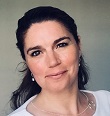
Caroline McCarthy joined the then Willis Group in 2015, shortly before the merger with Towers Watson was announced.
In 2017 Caroline transferred to The Netherlands to set up and head up the group’s new treasury company. Caroline started
her treasury career at Euromoney Institutional Investor plc after fulfilling a number of corporate finance rolls at
Unilever. Caroline holds a degree in Financial Management, is CIMA qualified and a member of ACT.
Christopher Donohoe
Assistant Group Treasurer & Global Head of FX, Ingersoll Rand, Ireland

Christopher Donohoe, is Assistant Treasurer for Ingersoll Rand plc, responsible for Global FX, Guarantees and EMEIA
Treasury Operations. With over twenty years of financial experience, he has worked within the corporate treasury environment
across a number of industries as well as within banking. Christopher has a B Sc. in Business, an MBS in Finance, is
a Chartered Accountant and an AMCT with the Association of Corporate Treasurers.
Chris Robinson
Director, TransactionBanking.com, UK

Chris has over 30 years' experience in the payments business, working in treasury, cash management, transaction services,
trade, e-commerce and card acquiring. He has worked in senior roles for Citibank and Bank of America and founded the
treasury workstation company, IT/2. In 2003 he set up TransactionBanking.com, a treasury and payments best practice
training and consulting business, working with large multinational corporations and financial institutions around the
world. He has a broad depth of experience in the trends and development of payments and treasury across many regions
and countries.
Chris Skinner
Writer & FinTech Commentator, The Financial Services Club, UK

Chris Skinner is known as an independent commentator on the financial markets and FinTech through his blog, the Finanser.com,
as author of the bestselling books Digital Bank, ValueWeb and its new sequel Digital Human. He is Chair of the European
networking forum The Financial Services Club and Nordic Finance Innovation, as well as being a Non-Executive Director
of the FinTech consultancy firm 11:FS. He is on the Advisory Boards of many companies including B-Hive, Bankex, empowr,
IoV42, Innovate Finance, Life.SREDA, Moven, Meniga, Pintail, Project Exscudo and the Token Fund, and has been voted
one of the most influential people in financial technology by the Wall Street Journal’s Financial News and Thomson
Reuters. He has recently been voted Game Changer of the Year and Financial Markets Advisor of the Year by Finance Monthly,
CEO of the Year by CV Magazine, FinTech Speaker of the Year by TMT Global and has been an advisor to the White House,
the World Bank and the World Economic Forum.
David Blair
Senior EuroFinance Tutor & MD, Acarate, Singapore

David Blair puts his 25 years of treasury and management experience to work for a broad range of clients through Acarate
in Singapore. After starting his career with Price Waterhouse, David went on to set up international treasury operations
for ABB and Nokia. David became Group Treasurer at Nokia, and subsequently Vice President of Treasury at Huawei.
Jonathan Burkhead
Senior Global Treasury Director, Open Text, Canada

Jon Burkhead has over 35 years of experience working in multi-billion dollar global organizations in several industries including financial services, software, distribution, and insurance. His experience includes operational treasury and insurance, and consulting with internal and external customers to help identify ways to improve process, gain operational efficiencies, increase income and reduce expenses through creative solutions and working capital improvements.
Elisabeth Mosseen
VP Group Treasurer, Volvo Car Corporation, Sweden/h6>

Volvo Cars is a Global premium car manufacturer headquartered in Gothenburg and managed as a stand alone business under ownership of Geely Holding since 2010. Group Treasury is responsible for all financial markets risk, funding and all cash management and trade finance within the Group. Elisabeth joined Volvo Cars in January 2012, working initially as Head of Treasury risk management before taking over the role as Group Treasurer in January 2015. She has an extensive career in other corporate treasury and the banking sector in various roles.

Volvo Cars is a Global premium car manufacturer headquartered in Gothenburg and managed as a stand alone business under ownership of Geely Holding since 2010. Group Treasury is responsible for all financial markets risk, funding and all cash management and trade finance within the Group. Elisabeth joined Volvo Cars in January 2012, working initially as Head of Treasury risk management before taking over the role as Group Treasurer in January 2015. She has an extensive career in other corporate treasury and the banking sector in various roles.
Nishat Neelay Deshmukh
Head of Finance, Maersk Kanoo Emirates LLC, UAE

In a 12-year international career with Maersk, a global transport & logistics company, Nihsat has worked in Middle East and Europe, taking on project management and leadership roles within Network Planning, Operations and Commercial Finance. Her expertise lies in long term cost optimization, business planning, risk management and transformation. Nishat is a change catalyst, eager to embrace the challenges arising from disruption and transformation in today’s world and the challenge of designing winning strategies in fiercely competitive markets.
David Guppy
CFO, Beano Studios, UK

David is an experienced CFO, a Chartered Management Accountant, having held senior finance leadership positions in
the media and entertainment industry over the past 14 years, in both large multinational companies as well as SMEs.
Since May 2017, David has been the CFO at Beano Studios, a new and exciting children’s media/digital transformational
venture, owned by DC Thomson, that they launched back in 2016. His media expertise is wide ranging from IP &
brand building, corporate transactions, merger & acquisitions, raising debt finance, television production,
licensing & merchandising, international distribution, digital media, advertising and subscribers’ management.
He has been in the media and entertainment industry since 2004, having worked at Orbit Showtime Network, NBC Universal,
and Silvergate Media – a media group that is globally famous for producing the popular pre-school brands ‘Octonauts’
and ‘Peter Rabbit’. Prior to media, David worked in internal audit for Hertz Europe Ltd and then as a finance
manager in the airline industry for British Airways, leaving in 2004. David has a wife and 3 children, and enjoys cycling
with the family as well as playing tennis at his local tennis club in Tunbridge Wells, when he gets the time!
David Thilthorpe
Treasury Director, Tetra Laval International, Switzerland

David Thilthorpe is Treasury Director for the Tetra Laval Group based in Lausanne. David’s main responsibilities are
managing the foreign exchange, commodity and interest rate exposures for the Group as well as the liquidity management.
Prior to joining Tetra Laval in 2006, David worked in Treasury for Sony in London and New York. David has an Executive
MBA from IMD and an MCT from the Association of Corporate Treasurers.
Hugues Pirotte
Professor of Finance, Solvay BS, ULB, Brussels
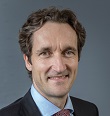
Hugues Pirotte is a Professor of Finance, Solvay BS, Université Libre de Bruxelles (ULB), Academic Director of the Master in Business Engineering, the Executive Master in Finance and the Belfius Corporate Banking Academy. He is also a Co-founder and Head of Research at FinMetrics SA, a 20-year old Swiss company dedicated to financial advisory and responsive dashboarding for banks, corporate treasuries, insurance companies, funds, hedge funds, boards of directors and courts. Hugues is also a member of the Scientific Committee of the BEL20 Index, Euronext Brussels and a board member of the Luxembourg Association of Corporate Treasurers (ATEL), member of the ACTSR.
Howard Tullman
Executive Director, Ed Kaplan Family Institute for Innovation & Tech Entrepreneurship at Illinois Tech; Former CEO, 1871; General Managing Partner, G2T3V LLC & CHIP, LLC

Howard A. Tullman is the Executive Director of the Ed Kaplan Family Institute for Innovation and Tech Entrepreneurship at the Illinois Institute of Technology. He is the former CEO of 1871 in Chicago – where digital startups get their start – and the General Managing Partner for the Chicago High Tech Investment Partners, LLC and for G2T3V, LLC – both Chicago-based early-stage venture capital funds. He is the past Chairman/ CEO of Tribeca Flashpoint College which he co-founded in 2007 and the former President of Kendall College in Chicago, as well as the former Chairman/CEO of Experiencia, Inc. He is the Chairman of the Endowment Committee of Anshe Emet Synagogue; a member of the ChicagoNEXT and Cultural Affairs Councils; the Innovate Illinois and Illinois Arts Councils; an Advisory Board member of HighTower Associates, and Imerman Angels, and an Adjunct Professor at Northwestern’s Kellogg School, as well as a regular guest lecturer at the Northwestern University School of Law. Mr. Tullman also serves as a Director of Vehcon, SnapSheet, and Keeper Security and served as a long-time Director and Board Chairman of The Cobalt Group, a Trustee of the Museum of Contemporary Art in Chicago and of the New York Academy of Art and the Mary and Leigh Block Museum of Art at Northwestern University, and as the lead Director (and briefly Chairman) of The Princeton Review. Over the last 50 years, he has successfully founded more than a dozen high-tech companies. @tullman @1871Chicago
James Kelly
Group Treasurer, Pearson, UK

Luca Hammel
Global Treasury, Front Office Head, Dufry Group, Switzerland

Robert J. Novaria
EuroFinance Tutor & Partner, Treasury Alliance Group, US

Bob has more than 30 years of corporate treasury experience in the roles of treasurer, credit director, finance manager
and controller at BP America and Amoco Corporation. He has successfully managed post-acquisition integrations, technology
upgrades and corporate restructurings. Currently, Bob is a partner with the Treasury Alliance Group, leveraging his
corporate experience in client engagements dealing with global treasury, risk and crisis management; cash management
and cash flow forecasting; working capital management; shared service operations and general management. He also shares
his experiences by tutoring others in courses such as international cash and treasury management, corporate risk management
and cash flow forecasting, as well as by chairing, moderating and speaking at treasury conferences worldwide.
André Olivier
VP Treasury, Multichoice SA, South Africa
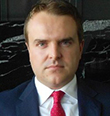
Shortly after completing his honours in Business Management at the University of Pretoria, Andre joined the Trafigura group in their then London based Treasury head office. In 2009 he was tasked with establishing the North American treasury based in Houston following which he joined the Puma Energy division in Johannesburg in 2012 as regional Treasury Manager responsible for operations in 14 countries across the continent. In 2014 he moved into a global role responsible for the group’s deployment of a SWIFT leveraged operational treasury solution with deployment in over 35 countries. In 2015 Andre join the MultiChoice division of Naspers as Treasurer of the Africa region, with coverage of over 45 countries.
Susana Aristizabal
Director, Assistant Treasurer, Bombardier Transportation, Switzerland
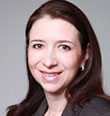
Susana is a Certified Treasury Professional (C.T.P.) and holds an MBA from HEC Montreal. Susana joined Bombardier Corporate Treasury in Montreal in 2005 and later transferred to Zurich to head the Cash Management department for Transportation Group. Since 2012, Susana is Assistant Treasurer overseeing Treasury Operations, FX, Cash Management and Treasury Controlling.
Samuel Antunes

Mr Antunes joined the L’Occitane Group in 2010 and was appointed as International Treasurer. He quickly became
Group Treasurer, and then Director of Group Cash Management and Financing. Prior to joining the Group, he started his
career as Treasurer for the french DIY retailer Group ADEO for 5 years. Mr Antunes holds a master degree in Finance
and in International Taxation from University of Lille II.
Stéphane Garelli
World Authority on Competitiveness, Emeritus Professor at IMD Business School and University of Lausanne, Director of IMD World Competitiveness Centre

Stéphane Garelli - a world authority on competitiveness - has pioneered research in this field for 25 years.
Professor at IMD (Institute of Management Development) Lausanne, where he heads the World Competitiveness Centre, he
is also professor at the University of Lausanne. A pioneer of world competitiveness theory, Professor Garelli has written
numerous articles and publications on the global competitiveness of enterprises and nations.
He is the author of two bestselling books published in several languages:
"Top Class Competitors - How Nations, Firms, andIndividuals Succeed in the New World of Competitiveness" with Wiley.
“Are you a Tiger, a Cat or a Dinosaur?” available on Amazon.
Professor Garelli is closely connected to the world of business. He was formerly Chairman of the Board of Directors of "Le Temps", the leading French language Swiss newspaper, Chairman of the Board of the Sandoz Financial and Banking Holding, and member of the board of the Banque Edouard Constant.
For twelve years he was permanent senior adviser to the European management of Hewlett-Packard, and before that Managing Director of the World Economic Forum and of the Davos Symposium for many years. He is a member of a number of institutes, such as: China Enterprise Management Association, Board of the ‘Fondation Jean Monet pour l'Europe’, The Swiss Academy of Engineering Sciences, the Mexican Council for Competitiveness, among others. He was also a member of the Constitutional Assembly of his local state - Vaud, Switzerland from 1999 to 2002.
Stephen Darnley
Corporate Treasurer, IATA, Switzerland

Stephen leads IATA Corporate Treasury team and provides advisory services to business units. He has global responsibility for IATA's banking relationships and facilities to support the IATA Settlement Systems activities covering 177 countries with annual funds processed in excess of $370 billion and credit facilities of circa $700 million. Responsible for liquidity and cash management for IATA corporate activities and foreign exchange exposures of over $200 million. Stephen is the chair of IATA pension fund Investment Committee and a member of pensions management board. He also supports Risk and Insurance management activities for IATA and the Industry.
Thiago Augusto R. Cesar
CEO, Bit.One, Switzerland
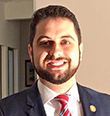
Thiago Cesar is the co-founder and CEO of Bit.One. Holding an MSc from the University of London, Thiago produced one
of the first academic thesis about Bitcoin, while also being a researcher at the Institute of Economic Affairs (IEA)
within the field of digital currencies. His company, Bit.One is a payment solution responsible for processing over
USD 2 million per day in transactions related to digital assets and cross-border payments between Europe and Brazil,
providing an innovative solution to international transfers.
Thomas Dunn
Chairman, Orbian, UK

Thomas Dunn is Chairman of Orbian and has over 20 years' experience in financial services including banking, insurance
and private equity. Prior to joining Orbian, Tom worked for 16 years with JP Morgan in London, Melbourne, Sydney and
Tokyo. His experience was most focused upon debt capital markets, corporate finance and credit markets; and he was
ultimately responsible for each of these businesses for JP Morgan in Asia Pacific. Tom is also the Chairman of Raglan
Capital Limited, a Bermuda based private equity firm. Tom has a Masters of Arts Degree in Economics from Cambridge
University.
Philippe Crolus
Global Process Owner, Treasury & Cash Management, Novartis, Switzerland

Philippe joined Novartis as project manager in 2010 from CIBA AG where he had multiple roles in finance, reporting & consolidation, and SAP implementation. Philippe moved to the Novartis Finance Transformation Programme in 2011, where he significantly contributed to the design and implementation of the In House Bank and Payment Factory. Philippe holds his current role of GPO TCM since 2015. Over the past three years Philippe collaborated with the Novartis Global Service Centers (NGSC’s) on further standardization of TCM processes, enhanced compliance and productivity initiatives.
Peter Cunningham
Consumer & Healthcare Head, EMEA, MD, Citi, UK

Peter is Consumer & Healthcare Head for Citi’s Treasury and Trade Solutions business in EMEA and works very closely
with leading industry players within this sector to establish best in class treasury structures. During his 20 years
at Citi, Peter has worked in Product Management roles across Trade Services and Cash Management in EMEA and North America;
as an EMEA Cash Management Sales Consultant; and as a Global Solution Sales Manager covering corporate clients across
Consumer & Healthcare and Technology, Media & Telecoms sectors in EMEA and globally.
Martin Bellin
CEO, Bellin, Germany

Martin Bellin is founder and CEO of the BELLIN Group. For 20 years, Martin has had the privilege of helping treasurers
face challenges in treasury. Today, the group stands for leading and innovative FinTech and treasury solutions as a
reliable partner for businesses, banks and other financial players. Martin has been recognized as “Entrepreneur
of the Year” on several occasions.
Marion Barre
Senior Treasury Officer, International Organization for Migration, Switzerland

Marion Barré is Senior Treasury Officer at IOM with the mission to work on the Treasury technical landscape,
risk mitigation strategies and policies. After graduating with a Master’s degree in Bank and Finance, she worked
at Sanofi as Treasury Back-Office and at L’Occitane International as International Treasurer.
Malcolm Grant
Chief of Treasury, International Organization for Migration, Switzerland

Malcolm qualified as a Chartered Accountant 1993 in the UK, and spent 15 years in audit, accounting and related services.
In 1999 he joined IOM’s Treasury team in Geneva and became Head of Treasury in 2009. Since then he has been developing
IOM’s Treasury landscape to meet the very rapid growth of this UN Organization.
Maex Ament
CEO & Co-founder, Centrifuge, US

Serial FinTech entrepreneur, Markus Ament, or Maex as he is known, has led many companies from early-stage startups
to global leaders, used and loved by thousands worldwide. He is currently CEO and co-founder of Centrifuge, with the
mission to create an operating system for the financial supply chain to fundamentally change how businesses transact
and collaborate. Maex is co-founder and member of the board of Taulia, and has transformed the company from an idea
in 2009 to the market-leading Financial Supply Chain company, connecting businesses to create a more efficient and
profitable supply chain. With an enviable list of the of Fortune 500 clients and over 300 employees, Taulia has quickly
become the recognized leader in the financial supply chain. Maex began his FinTech career working for SAP, developing
and deploying payment and banking solutions in the SAP financials market. Maex also acts as an angel investor and mentor
for various startups.
Friedemann Kirchhof
Head of Receivables and Supply Chain Finance, Siemens, Germany

Friedemann Kirchhof is Head of Receivables and Supply Chain Finance with Siemens Treasury GmbH. He holds this position since December 2016, before that he was responsible for Supply Chain Finance within Siemens since 2009. In his earlier career, he worked in various positions within Siemens in the UK in Germany. Friedemann holds a B.A. degree in Business Administration from the University of Applied Sciences in Ingolstadt as well as degrees in banking and industrial business of the Chamber of Commerce and Industry in Germany.
Brian Briggs
Global Head of Presales, WorkFusion

Brian Briggs is the Global Head of Presales at WorkFusion. He has been with the company for 3.5 years and started his career at the HQ in New York City before moving to Europe to help build a sales presence in EMEA and APAC. Throughout this time Brian has worked closely with customers educating them on WorkFusion and the automation market. Before joining WorkFusion, Brian spent 7 years at Booz Allen as a management consultant focused on analytics and innovation.
Kurt Zumwalt
Treasurer, Amazon, US

Kurt is Amazon's Treasurer, a role he has held since 2014. Kurt provides leadership for Amazon’s global cash
and portfolio management, debt financing, foreign exchange, global insurance and treasury related technology infrastructure.
Kurt was Amazon's assistant treasurer from 2004 to 2014. Prior to Amazon, Kurt was the Treasurer of ProBusiness Services
from 2001 to 2003 and the Treasurer of Wind River from 1997 to 2001. Kurt holds BAs from the University of Pennsylvania
in Economics and Political Science and an MBA from the University of Washington.
Philip Green
Former CFO, Deliveroo, UK

Philip Green is a highly qualified management accountant, having worked for various retail, FMCG and tech companies over the last 20 years - eight years of which were spent working for Amazon, where he held various finance roles and learned, first-hand, about scaling a business. His most recent role was leading finance for Amazon’s European Operations, before joining Deliveroo as CFO in June 2016. Phil left Deliveroo in early 2018 to pursue a portfolio career, helping early stage companies scale across various industries.
Christopher Van Woeart
Head of Treasury, Stripe, US

Christopher Van Woeart is Head of Treasury at Stripe, the innovative technology platform at the forefront of expanding
internet commerce. Before joining Stripe in 2016, he was Head of Platform Balance at peer-to- peer lending company
Lending Club. Prior to that, he spent many years at Goldman Sachs, including five years as Vice President, Corporate
Treasury, where he was responsible for firm-wide liquidity management, liquidity stress testing, regulatory relations
and compliance, and prime brokerage risk management.
Daniel L. Blumen
CTP, Partner, Treasury Alliance Group LLC, US
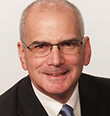
Daniel L. Blumen, CTP is a founding partner of Treasury Alliance Group where he leads consulting engagements dealing
with working capital management, systems integration, liquidity and risk management and other global treasury issues.
Prior to co-founding Treasury Alliance in 2002, he was Managing Director of Knowledge Management Applications, a firm
he founded in 1998. Dan was with Bank of America in Chicago and Singapore, where he managed the ASEAN region of the
Global Payment Services Group. He also worked for Citibank in Chicago and in London where he had pan-European management
responsibility for cash management business development. He has worked with large multinationals and emerging international
companies and shares his experience as an author and as a frequent speaker at cash management gatherings worldwide.
Christophe Vergne
Cards and Payment practice leader, Capgemini Global Financial Services, France

Backed by a solid banking background, Christophe has plaid critical role in building Capgemini's global payments transformation
capability, enabling major institutions transform and consolidate their leadership across all market segments and services.
Over the last 14 years, reporting with partners on this transformation has made World Payments Report one of the most
successful publications in the industry
Carole Berndt
Senior Advisor, TransitionHub, UK

With over 20 years’ experience in Corporate Banking, Carole is a global financial services leader, having worked across
Asia, Americas and Europe leading large transaction banking businesses for Citi, BoAML and RBS. Known across the industry
for building great teams, delivering innovative and effective solutions in cash management, treasury services and trade
finance. Now working independently, Carole is engaged on range of projects, focused on the future of work. Carole is
the founder of Now.Next.You an innovative consulting service transforming corporates and empowering individuals, and
is the Senior Advisor to TransitionHub, a future of work initiative partnering with WeWork.
Razvan Coarca
Director Vendor Finance, Liberty Global, UK

Guillaume Peslin
International Group Treasurer, Alten Group, France

Vice treasurer of ALTEN Group, Guillaume PESLIN manages his team mainly dedicated to international cash management and IT projects. Graduated in both master’s degrees of Corporate Treasury and of Science in Engineering (IT and electronics) he seeks improvement of cash management processes by bringing technical innovation in his position.
Jörg B. Bermüller
Head of Cash and Risk Management, Merck, Germany

David Watson
MD, Global Head of Digital Cash Products & Americas Head of Cash Management, Deutsche Bank

David Watson is the Global Head of Digital Cash Products for Deutsche Bank’s Global Transaction Banking (GTB) business,
responsible for overseeing and driving the strategy and planning for digital business models and client connectivity
products for Cash. This entails identifying disruptive business opportunities, investments and collaborations. In addition,
he is responsible for the bank’s Cash Management franchise in the Americas region. Prior to this, David was the Global
Head of Product Development for the GTB business. In this function, he was responsible for the development of the bank’s
transaction banking products across cash, trade and securities. This also included overseeing GTB’s investment process
and the delivery of its strategic platform transformation. David joined DB in 2002 and since then held a variety of
strategy and delivery roles across the front and back office. He has a degree in Business from Edinburgh University.
Marcus Hughes
Head of Strategic Business Development, Bottomline Technologies, UK

With 30 years’ experience in the banking and software industries, Marcus helps corporates and banks to
develop strategic initiatives for streamlining payments and cash management and maximizing the benefits
of SWIFT and financial supply chain automation. He has held senior positions with RBS and Banco Santander. A
thought leader on working capital optimisation, Marcus has presented at numerous industry events and authored
many articles. Marcus has a BA and MA from Cambridge University. Marcus is an expert on banking, the future
of payments, cash and liquidity management, payment factories, real time payments, treasury, SWIFT, supply
chain finance, blockchain, FinTech and Open Banking / PSD2.
Michael Spiegel
Head of Cash Management and Head of Global Transaction Banking Germany, Deutsche Bank, Germany

Michael Spiegel is the Head of Cash Management and the regional Head of Global Transaction Banking (GTB) Germany, based in Frankfurt. He is a member of the GTB Executive Committee. Under Michael´s leadership, Deutsche Bank provides globally Cash, Payments and Liquidity Management solutions as well as related Foreign Exchange Management for Corporates and Financial Institutions. Furthermore, he oversees the Bank´s lending activities in the German and Dutch Mid Cap Corporate portfolio. Under his leadership, Deutsche Bank facilitates the optimization of the corporate and institutional clients´ treasury and payment and develops new products making use of digitalization. In his role, Michael carries full P&L responsibility and accountability for end-to-end business operations, and all governance and regulatory responsibilities. Having work in senior positions across three continents for nearly thirty years, Michael has been instrumental in the strategic development and growth of Deutsche Bank´s international corporate banking proposition. In the TF/CMC business Michael was the driving force behind the global roll-out of Deutsche Bank´s fully integrated Vendor Finance solution. He also oversaw a major European business integration and restructuring project. Michael is a member of the supervisory board at Deutsche Bank Privat und Firmenkunden AG and its Audit Committee. He holds a BA in Banking from the Bank Academy in Frankfurt, Germany
Nicolas Carrera
Group Treasurer, Metalor Technologies, Switzerland
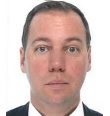
Nicolas is the Group Treasurer of Metalor Technologies SA, Switzerland. He has performed this role since October 2013. He is an experienced finance professional with more than 19 years' experience in Treasury and trading. He has played a key role in the implementation of the Group's Treasury Management System and has lead several initiatives to reduce PM working capital thanks to a full integration of the production need in the Treasury Management System.
David Ledure
Partner, PwC, Belgium

David combines his 15 international tax experience with a passion for treasury and financing. Hereto, he focusses on treasury activities, banks and insurance sector. Already long before the BEPS era, he assisted groups to develop consistent and economically robust transfer pricing policies. Today, he assists groups on strategic aspects related to their overall transfer pricing models, their financing set-up and the related policy aspects. He carries-out economic analyses covering all aspects of financing and assists groups in the execution of all aspects of their intercompany financing. Thanks to his wealth of experience in transfer pricing and international taxation, he can connect the dots of the every changing tax rules and practices of today’s world.
Bruno Mellado
Global Head of Collections and Payments, BNP Paribas, Belgium
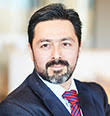
After a career in project management consulting in Canada, Bruno Mellado joined BNP Paribas in 2006. He managed large investment programmes to create payment capabilities in Europe for the group BNP Paribas and he is now responsible for payment and collection cash management products for the group.
Raj Malkani
Associate Director, Global Liquidity & Cash Management, HSBC, UK

Raj Malkani is an Associate Director at HSBC and is responsible for the provision of Global Cash and Liquidity Management
(GLCM) solutions to Global Banking & Markets clients in the Capital Goods Automotives Sector. Raj has been in the
transaction banking industry since 2011 in a client-facing sales role. Prior to his role at HSBC, he was conducting
a similar role covering US headquartered Technology, Media and Telecoms clients at Bank of America Merrill Lynch in
London. Raj has an Upper Second Class Honours degree from the University College of London in the UK and successfully
completed the Certificate of International Cash Management (Cert ICM) course in 2015.
Mumtaz Dole
Director Treasury - Cash Management & In House Bank, Vestas Wind Systems, Denmark

Mumtaz is the Head of Cash Management and In-house banking at Vestas. Mumtaz has over 10 years’ experience enabling
global leaders such as Mærsk and Vestas successfully plan and implement strategic Cash Management and SAP Payment
Factory solutions. Mumtaz is also an expert in business process optimization and achieving efficiency gains through
automation. Mumtaz holds a BA from the University of Liverpool and is ACCA certified.
Adrian Rodgers
Senior EuroFinance Tutor & Director, ARC Solutions, UK

After qualifying as a Chartered Accountant, Adrian spent a number of years with IBM, in a variety of treasury and sales
roles. Adrian was also part of the implementation team which created IBM International Financial Services, the European
centralised treasury operation based in Dublin. Adrian then joined the newly created cash management consultancy team
of Chase Manhattan Bank, with a brief to help create cash management solutions which matched the needs of customers’
underlying businesses and technology infrastructures. As a Director at PricewaterhouseCoopers, he specialised in managing
change in the finance function, including re-engineering of corporate treasury. His current company is an independent
consultancy providing advisory, design and implementation services to corporates and banks, on a variety of change-related
issues within the finance function. Services include strategy development, process design, bank and vendor selection
and project management. Clients include major corporations with a strong international focus.
Anne Friberg
Senior Director, Peer Knowledge Exchange, NeuGroup

Anne Friberg joined NeuGroup in 2006. Ms. Friberg oversees relationships, planning and research for NeuGroups for European and LatAm regional treasury, and the two FX risk management groups. She also writes for NeuGroup's flagship newsletter, iTreasurer. Prior to joining NeuGroup, Ms. Friberg worked for several years in corporate planning, international treasury and investor relations Anheuser-Busch Companies, Inc. in St. Louis, Missouri.
Timothy Smallow
Treasury, Amazon, US

Tim is based at Amazon’s HQ in Seattle, Washington, USA and heads the Treasury Business Operations team for Amazon. He partners with Amazon businesses to expand their global footprint through execution of treasury strategies, liquidity management, and risk management. This includes efficient management of capital, liquidity, FX and controllership for the rapidly growing Amazon businesses. He recently relocated to the US after leading PayPal’s International Treasury HQ in Singapore, following a career in banking, including BTMU/Union Bank, JPMorgan Chase, Washington Mutual, and Providian Financial. Tim has lived and worked in the United States of America, the United Kingdom, and The Republic of Singapore.
Shahrokh Moinian
MD, Global Head of Cash Products, Deutsche Bank, Germany
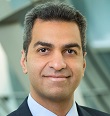
Shahrokh Moinian is Managing Director and Global Head of Cash Products within Deutsche Bank's Global Transaction Banking.
Based in Frankfurt, he has responsibilities for running the product strategy, investments, innovation, resource allocation
and overall product profitability globally. He is also the sponsor of Deutsche Bank’s Payment Services Directive
2 (PSD2) initiative across the organization. Prior to that, Shahrokh was the Head of Trade Finance & Cash Management
Corporates business in the Americas, based in New York. Before his Americas mandate, he occupied various leadership
roles in Deutsche Bank’s Cash Management sales, product and solution design franchise in EMEA. Prior to joining
Deutsche Bank in 2001, Shahrokh had a three-year tenure as the Corporate Treasurer of Essilor, a French multinational
in the optical lenses industry. He began his career at Citibank in Europe in the early 1990s, occupying various positions
in relationship management, cash management and trade finance. Shahrokh has a Master of Arts degree in International
Relations and Economics from Johns Hopkins University's School of Advanced International Studies in Washington DC and
a Bachelor of Arts degree in International Economics from Sciences Po in Paris, France.
Ireti Samuel-Ogbu
Managing Director, EMEA Head, Payments and Receivables Treasury and Trade Solutions, Citi, UK

Ireti Samuel-Ogbu is Managing Director, EMEA Payments and Receivables Head with Citibank’s Treasury and Trade solutions
division. She’s based in London with responsibility for the P&L, Product development and Solutions utilized by
Financial institutions, Corporates and Public sector customers. Ireti has been with Citi for 30 years, holding various
roles in London, Nigeria and South Africa which span Relationship Management with Global Subsidiaries Group and the
Public Sector Banking Team, Corporate Finance and as Transaction Services Head for two of the largest markets in Africa.
Ireti is a champion for Diversity initiatives having cofounded the Sapphire Leadership Programme for women in Africa
and the Momentum Programme in the UK . She serves as a Non-Executive Director of Citi Nigeria and a UK based charity
Opportunity International. She was also listed in the 2017 Innovate Finance Women in FinTech Powerlist.
Bob de Graaf
Global Treasury Operations Manager, Jacobs Douwe Egberts, The Netherlands

After working for PwC in both Treasury Audit and Treasury Consulting, Bob joined Jacobs Douwe Egberts in January 2018 as Global Treasury Operations Manager. Within JDE Bob focusses on cash management and on several larger projects within the treasury scope. The main project Bob is working on at the moment is bank connectivity and the broader cash management centralization. He has a MSc degree in Financial management and has completed two post graduate education programmes: Register Account (RA) and Treasury Management (RT).
Jan Schets
Global Treasury Manager, Jacobs Douwe Egberts, The Netherlands

Jan Schets has been working with Jacobs Douwe Egberts as of its inception in 2015 and also with the predecessing companies DEMB-1753 and Sara Lee Corporation holding various roles in the treasury function in The Netherlands and the USA. His current area of responsibility include cash management, group financing and working capital management. Earlier carrier stations include treasury position at PolyGram International in London; assistant controller at Randstad; and analyst positions at Fortis and the Rabobank.
Bradley Gains
Treasury Manager, UPS, UK

Brad Gains is a manager at UPS Global Treasury; UK and currently leads the In-House Bank (IHB) team. Brad began his career at BNP Paribas Leasing Solutions UK before moving to UPS within the Front Office Treasury team in 2014. In 2016 Brad was assigned to work on the Treasury Management System (TMS) and IHB implementation project before taking on the role of overseeing the newly formed IHB in 2017.
Luis Martinez Jurado
SVP Treasury & Financing, NH Hotel Group, Spain

Luis Martínez Jurado has more than 15 years of experience in management positions at multinational corporates, with a focus on Treasury, Financing and Capital Markets. Luis is currently Senior Vice President at NH Hotel Group, managing the Corporate Finance, Treasury, Credit Risk Management and Insurance teams. Luis has a bachelor´s degree in Economics and MBA at IE Business School. Past professional experience includes working for relevant multinational companies including Degremont (Suez), Telvent-Schneider Electric, and Prosegur where he was Finance Director.
David Tao
Senior Manager, Payments, Uber Technologies Inc., US

David Tao is a Senior Manager, Payments at Uber Technologies, Inc. based in San Francisco, CA. His primary focus is on managing Uber's global banking partners to identify and implement payment solutions for Uber's many riders, drivers and products in ~50 currencies across ~60 countries.
Matt Wegner
Head of Payments Partnerships, Uber Technologies Inc., US

Matt Wegner is the Global Head of Partner Payments at Uber Technology Inc. in San Francisco, CA and focuses on faster and alternative payments to Uber's Drivers and Partners located in ~80 counties around the world. Most of his 20+ years of payments acceptance and disbursement experience is with fast-paced, hyper growth Silicon Valley companies, with several different payment instruments (credit cards, debit cards, high/low value bank transfers, P2P/wallet transfers and "pay later" lending solutions) and across each stage of the payment life cycle.
Johan Nystedt
VP Treasurer & Chief Risk Officer, Conagra Brands, US

Johan Nystedt, Treasurer and Chief Risk Officer, has joined Conagra Brands over two years ago where he leads Global Treasury and Enterprise Risk Management, including Capital Markets, Risk, Treasury Operations, Insurance, Credit and Benefit Investments. He is also a member of the Finance Leadership Team and chairs the Risk Oversight Committee. Prior to Conagra, Johan spent five years as Global Treasurer, Head of Investor Relations and Business Development at Levi Strauss & Co. in California. Before joining Levi’s, he had held treasury and risk management roles at Kraft Foods Inc., Altria Group, Inc. and Philip Morris International.
Dr. Michael Reuter
Head of Corporate Treasury, Henkel AG & Co. KGaA, Germany

Dr. Michael Reuter is head of corporate treasury at Henkel, a 20 bln. EUR global player in HPC and Adhesive Technologies.
In this function he is responsible for the full range of global treasury operations, like e.g. financings and investments,
risk management or pension asset management. As a trained banker Michael held various positions in the financial as
well as operative spheres of the company over the time of his 29 year career with Henkel. Before taking over the responsibility
for treasury in 2010 he served e.g. several years as financial director on the executive committee of Henkel´s
Laundry & Home Care division, as well as different positions in the finance division. For a successful acquisition
financing project in 2016 Michael was nominated one the 5 candidates on the short list for the “Treasury of the
year” award in Germany (by the “Treasurer” magazine). Michael studied economics in Germany and the
United States and holds a Ph.D. from the University of Cologne.
Randy Ou
Vice President Group Treasury, Alibaba, China

Randy Ou is currently the Treasury Vice President for Alibaba Group, based in Hangzhou. He has been the Treasurer for
China and Treasury Global Center of Excellence in HP, based in Shanghai. He has also been in the role of Asia Pacific
and Japan regional controller for the Real Estate function in Hong Kong, and regional senior business analyst when
joining HP. Before HP, he had a few years of finance experiences in the military, finance company, and bank. He was
graduated from National Taiwan University with the major in Economics and obtained MBA degree from University of Michigan,
US. He has also earned the Chartered Financial Analyst (CFA) qualification and was the ex-Principal Advisor for the
CFA China Shanghai Representative Office.
Raffael Waldmeier
Global Treasury Controller, Dufry, Switzerland

Raffael, Global Treasury Controller, started his career as an intern at Dufry in 2014 after completing his Bachelor’s degree in Business and Economics. During this stint with Dufry, Raffael shone and was offered a full-time position as Global Treasury Controller in 2017. During his time with Dufry, he juggled a multitude of treasury responsibilities and was tasked with the implementation of the TIS payment solution and also diverse compliance tasks.
As well as learning on the job, Raffael has been keen to develop through education. As well as completing his undergraduate degree, he has also recently attained a Master’s degree in Banking and Finance from the University of St. Gallen.
The scope of his role and his work managing various projects means that Raffael has, already compiled several career highlights. Here are a handful of these: managing and fulfilling regulatory requirements for the company in a fast-paced regulatory environment; managing and ensuring the smooth running of treasury applications; FX risk management evaluation and process redesign and monthly reporting.
Andy Young
Head of Finance, LV=, UK

Paul Wilkinson
Head of Corporate Finance & Treasury, Regus Plc, Switzerland

Paul has been Head of Corporate Finance and Treasury at IWG PLC (formerly Regus PLC) since 2011. Previous positions include Director-Treasury at Eaton Corp, CFO of Maus Frères SA, and, SVP Corporate Finance at Merck KGaA, Darmstadt (DE). In addition, he has held a number of senior positions in the treasury departments of various multinational companies in Switzerland and the UK. Paul qualified as a member of the Chartered Institute of Bankers (UK) and subsequently completed post graduate studies at INSEAD, Fontainebleau, France. He is a Fellow of the (UK) Association of Corporate Treasurers. Paul lives in Geneva, Switzerland with his wife and two children.
Paivi Paananen
Senior Banking Technology Specialist, Booking.com, The Netherlands

Päivi Paananen joined Booking.com in December 2010. Currently she is part of Booking.com Treasury Banking team and is responsible for bank connectivity and technical implementation in cooperation with the relevant technical teams. Projects are focused on global payment and collection set ups. Priori joining Booking.com Päivi gained 5 years of Banking experience in various roles at Nordea Bank in Finland. Päivi has a Barchelor degree in Business Administration and Total Quality Management from the Satakunta University of Applied Sciences in Finland. She also holds certification from ACT in International Cash Management and SWIFT for Corporates Specialist.
Johannes Jõgi
Corporate Treasury Manager, TransferWise, UK

Johannes is corporate treasury manager at TransferWise where the team is responsible for operational liquidity management, risk management and investing free cash. Johannes kicked off his career in Silicon Valley, working in venture capital, since old habits die-hard Johannes still looks for great companies to invest in. He holds a BSc in Finance from Westminster College, Utah (class of 2012).
Andy Young
Head of Finance, LV=, UK

Andy has been involved in all aspects of financial management, reporting and cash management over the last few decades
with various companies, the last 17 years being with LV=. Andy is currently responsible for statutory, regulatory and
financial risk reporting as well as financial control, treasury and client money.
Karen Van den Driessche
Assistant Treasurer, Avnet, Belgium

Bertrand de Comminges
Head of Business Development, Global Trade & Receivables Finance - Europe, HSBC
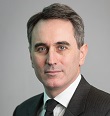
A renowned industry expert, Bertrand is currently responsible for HSBC’s GTRF European Business Development activities. In his current role, Bertrand manages the team that leads the engagement activities and trade finance solutioning for HSBC’s Global Banking & Markets clients. Previously, Bertrand has been ‘Global Head Solutions Structuring’ and, ‘Global Product Head, Structured Solutions’ for HSBC GTRF. He joined HSBC over six years ago from JPMorgan where he managed the EMEA Structured Trade Advisory business. Previously, Bertrand was RBS ‘EMEA Head of Trade’. Before becoming a banker, Bertrand got extensive experience working for Johnson & Johnson and, as a consultant in the re-structuring of well-known blue-chip companies. Bertrand is a Chartered Actuary, has a full-time MBA from the London Business School and, an MSc degree in Economics and Business Sciences from UCM. He is married, has five children, he is actively involved in charitable work and acts as a trustee of Charities. His hobbies include sailing, history, philosophy, classical music and theatre.
Alain Byl
Vice-President Group Treasurer, Umicore, Belgium

Alain Byl, Vice President Group Treasurer has led Umicore Treasury for 6 years and in that function has participated in the latest tranformational projects of Umicore . Before this, Alain gathered more than 15 years experience within Umicore in different functions among others Group Controller and Head of Internal Audit.
Brice Desmaretz
Corporate Finance & Dealing Room Director, Danone, France

After studies in business and finance at Paris University, I started my career in banking in London. 2 years later,
I joined the corporate world with 3 different experience : first, Air France in fuel hedging and procurement followed
by an internal move to the treasury front-office in 2005. Then, Veolia for 4 years as head of the dealing room and
of the TMS support team. Since 2014, I am in charge of the corporate finance and front-office department for Danone.
Jana Kottasova
Senior Director Global Treasury Operations, Mondelēz International, Switzerland

Jana Kottasova is the Senior Director Global Treasury Operations for Mondelēz International. Her global responsibilities
includes bank relationships, cash management (cash pooling, repatriation, working capital projects), Forex risk management,
and In House Bank operations. Before this position, she was Director Finance Strategic Projects (2016 – 2018), Director
Finance, Meals Category Europe (2012 – 2015), Director Finance Controlling Europe (2006 – 2012) and Country Finance
Director Kraft Foods Czech & Slovak, 2003 - 2006 and Kraft Foods Bulgaria (2000 – 2003). She has Master of Business
Administration degree from Sheffield Hallam University and Master of Science, degree in Mathematics from Charles University,
Prague.
Daniel Åhrman
Director, Head Trade & Financing Solutions, Volvo Cars, Sweden

More than 15 years of global leadership experience from the financial services industry. Past experience includes corporate banking, FinTech business development, capital goods customer financing and corporate treasury.
Brenton Green
Head of Tax & Treasury EMEA, NTT DATA Corporation, UK

Javier Orejas
Head of Banking, EMEA & Americas, IATA, Spain

Javier holds a Master’s degree in Law and business administration from the Complutense University of Madrid. A Pre-Doctorate
in Law, MBA from ICAI/ICADE and a Master’s degree in finance and banking direction from AFI. In his current role as
Senior Banking Manager in charge of Europe, Middle East, Africa and the Americas in IATA (International Air Transport
Association), Javier is responsible for designing and implementing new cash management solutions which support airlines’
financial health and enables IATA to make its financial services cheaper, faster and safer. Prior to IATA, Javier held
various positions at Accenture in the area of strategic banking consulting.
Benjamin Madjar
Head of Cross-Product Solutions, Deutsche Bank, France

Benjamin Madjar joined Deutsche Bank in 2015 as an Advisory Director, to brainstorm with DB customers in their strategic projects in cash & treasury management as well as on supply chain management. With more than 15 years in Advisory roles (Deloitte, EY) in Cash & Working Capital optimization and Restructuring, Benjamin worked with numerous Groups in their transformation projects. Today, as the Global Head of Cross Product Solutions, his team integrates latest innovations in DB clients transformation projects, with a clear focus on Open Banking / API / e-wallet type of solutions as well as Virtual account / In house bank / Cash Flow forecasting. As such, he leads the innovative project conducted in partnership with IATA.
Eric Matheny
Vice President, Corporate Finance & Treasury, Allianz Global Corporate & Specialty, US

Eric leads the North American Corporate Finance & Treasury department at Allianz Global Corporate & Specialty (AGCS), which is a leading global property & casualty insurance company headquartered in Munich Germany. His areas of oversight include the capital management and investment portfolio management of the AGCS North American operations, as well as the Head of Global Treasury for all of AGCS’ international operations.
Royston da Costa
Assistant Group Treasurer, Ferguson Group Services, UK

Royston Da Costa has over 28 years’ experience working in treasury. He joined Wolseley, now Ferguson Group, in April 2002, and was responsible for managing the large, international group’s daily debt and cash requirements. He also implemented a global multi- currency notional cash pooling structure with BMG in 2010. After being put in charge of treasury systems and development at Ferguson in 2010, Royston helped improve the visibility of Ferguson’s cash around the group using SWIFT MT940s, and in 2015 managed the project to implement a cloud-based treasury management solution called Bellin. He was promoted to assistant group treasurer in November 2016, and is now responsible for the middle office. Internally, he acts as the focal point for Ferguson Group’s business units on operational treasury issues such as payment connectivity, working capital and transactional banking. Externally, he is the main contact for the group’s relationship banks on matters related to payments, regulation and technology. He continues to be responsible for driving forward the group’s strategy on treasury systems. Royston has been interviewed by a number of mainstream Treasury journals like the Treasurer and Treasury Today. He has also had an article on “Cyber Fraud and the impact on Treasury” published by Bellin, a Treasury Management Solution provider. He is a frequent speaker at national conferences (ACT Annual conference) and international conferences (EuroFinance, The Economist, Treasury Innovation, and the Treasurers Exchange in Germany). Royston previously worked at Sky, Gillette, Seagram’s and Vivendi Universal.
Nadia Sultan
Senior Cash Manager, LyondellBasell, Netherlands

Nadia Sultan joined LyondellBasell in November 2012 in the Rotterdam Treasury department as a Cash Manager and was promoted to Senior Cash Manager EU in 2016.
Prior to joining LYB, Nadia worked for 8 years at BHP Billiton in The Hague, 4 years as a Financial Management Accountant for the Aluminum division, and 4 years in the Treasury department of BHP Billiton as the Senior Treasury Operations and Controller Officer. Nadia holds a Bachelor degree in Business Economics and the ACT Treasury Certificate (CerT).
Marco Schuchmann
Group Treasurer, ASICS Europe B.V., The Netherlands

Marco Schuchmann is Group Treasurer @ ASICS and has launched a Treasury transformation programme within the multinational sports company to create a strategic Treasury function. Before starting at ASICS, Marco spent 18 years in Treasury whereby he managed multinational projects at AKZO Nobel to change the treasury IT infrastructure and implement a payment factory in 30+ countries and 200 Legal entities and at Amgen where he set-up the Treasury back office and created a global Finance company to process all Treasury transaction. Prior to the corporate experience, Marco worked at various international banks in Corporate banking and Treasury sales. Marco enjoys sports and likes to travel with and without his 2 children.
Bruce Edlund
Director of Treasury, Citrix, US

Bruce Edlund is Director of Corporate Treasury at Citrix Systems, Inc. based in Fort Lauderdale, Florida. Mr. Edlund
manages a global team of four who are responsible for cash and liquidity management, investments, cash flow and balance
sheet hedging, bank relationships and recently stock buyback. Mr. Edlund has over 14 years of treasury experience as
Assistant Treasurer at DIRECTV Latin America, Senior Corporate Treasury Manager at Citrix, Director of Global Cash
Management at Walmart Stores, Inc. and returning to Citrix two years ago. His experience in very different-sized companies
in different industries has given Mr. Edlund a wealth of experience into different ways of tackling treasury’s challenges.
Prior to corporate treasury, Mr. Edlund worked for five years in investment banking in Latin America, primarily at
Bank of America. Mr. Edlund has a MBA from Thunderbird School of Global Management where he maintains ties and has
been a regular guest judge for their FORAD finance competition. He also has B.A. degrees in Economics and French from
California State University, Sacramento. After studying, living and working in France, Switzerland and Belgium, Mr.
Edlund is fluent in French. With his work in Latin America along with living in South Florida for 13 years, he is conversant
in Spanish.
Alexander Scherpf
Digital Consultant, Daimler AG, Germany

Ignacio Sanchez Miret
Chairman FinTech Committee, AFTE
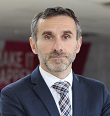
Ignacio Sanchez-Miret is Chairman of AFTE FinTech Commission, and member of the EACT Commission focused on digitalizing all the processes on the treasury tasks and involved in several international blockchain proofs of concept. He moved to France to take up the position of head of treasury at HMY Group in 2010 and promoted to Risk Manager of the group. He was previously based in Spain with one of the Spanish subsidiaries of the group, as Credit Manager for Southern Europe. Prior to this, Ignacio worked in treasury and risk management in the PHILIPS Components and Banking sectors where he obtained many years' experience in Treasury, Financing Transactions and Risk. Ignacio holds a Master in Treasury from Options & Futures Institute, certificate of ARM54 for Risk Management, a Degree in International Business from ESIC and studied business economics at Zaragoza (Spain) & Lille (France) University.
Paul Misere
EMEA Treasurer, Medtronic, The Netherlands

Paul Miseré is the Treasurer EMEA at Medtronic based in Heerlen, the Netherlands. Paul joined Medtronic in 2002 and has held various analyst and management positions in treasury and shared services like cash management, bank reconciliation, cash application, credit management, Inter Company, Fixed Assets and Accounting. Paul is passionate about process improvements, innovation and people development.
Mark Hartley
Founding Partner, Bankifi, UK

Before founding BankiFi, Mark Hartley has held a wide range of general management, sales, innovation and strategy roles in the technology industry for the financial services segment since the early nineties in the APAC region and Europe, most recently at Clear2Pay and FIS. A renowned innovator and thought leader on the subject of Payments & Open Banking, he currently serves as a strategic advisor on PSD2 and Open Banking to Nordea Group and is Advisor to the Board of Nationwide Building Society.
Somil Goyal
COO, Adjoint, UK

Somil Goyal is an experienced financial services executive with background in treasury, banking and technology. He
is the COO of Adjoint, a leading provider of blockchain and API-based products to treasury, commodities, insurance
and banking sectors. Adjoint was selected Most Influential FinTech 2018. Previously Somil has worked in management
roles for Deutsche Bank, EY and Deloitte across the globe. He is also a non-executive director in a machine learning
company; and an advisor to supply chain FinTech projects.
Simon Jones
Independent Consultant, UK

Simon has over 30 years of experience in Finance, Treasury and Transaction banking across developed as well as emerging markets & digital payments. Most recently he was responsible for treasury solutions at JPMorgan in EMEA, supporting clients around the world. Simon's team partnered with clients to establish global best practices for their treasuries, according to their sector’s transformation/dynamics and the macroeconomic environment they operate in. Prior to this, Simon was Head of Corporate Sales in EMEA from 2012 to 2015 and Asia Regional Executive for Treasury Services from 2006 to 2010 based in Hong Kong. Simon joined Chase Manhattan Bank in Singapore in 1996 as an International Treasury Consultant and held a number of sales and consulting positions in Asia. Prior to joining J.P. Morgan Chase, he began his treasury management career with the London International Group Plc and Omnicom Group in London. Simon is acknowledged as an industry champion in the Asia Pacific and was voted by Finance Asia in 2009 one of the top 50 Asia Masters of Finance. He is a Fellow of the Association of Corporate Treasurers (FCT) in the UK.
Dr. Jacob Bejoy
Head of Tech & BPO - Corporate Finance and Treasury, Deutsche Post DHL, Germany

Bejoy Jacob is the Head of Treasury Operations & BPO for Deutsche Post DHL’s Corporate Treasury. Bejoy has over 20 years of experience in Consumer Banking and Treasury across APAC and Europe. Presently managing the African Banking consolidation project for the Group across 39 countries in Africa.
Takachida Kuhudzai
Corporate Treasury Manager EMEA, Kimberly-Clark Corporation, UK
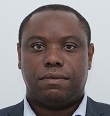
Takachida Kuhudzai is Corporate Treasury Manager, EMEA for Kimberly-Clark Corporation. Takachida leads strategic treasury activities for business units in Europe, Middle East & Africa covering foreign exchange risk management, capitalisation, funding, cash management and working capital. Takachida is also responsible for managing bank relationships across the EMEA region.
Bart Ras
Managing Director, Greensill Capital, UK

Bart is Managing Director at Greensill Capital and has over 20 years of experience in Treasury, Corporate Finance, Purchasing, Supply Chain, Structured Trade Finance and Working Capital Solutions. Previously, Bart was Global Head Business Development for HSBC Global Trade and Receivable Finance, before he headed Supply Chain Finance for Europe, Middle East & Africa at Citibank. Prior to banking Bart was at the corporate side, at Philips he held various positions including Global Head of Treasury Risk consultancy and CFO of Philips Supply Chain and Purchasing.
Joshua Cohen
Managing Director, Financial Institutions, Mitigram AB, UK

Joshua has a career in banking and finance that spans over 30 years which has included founding the world’s number one inter-dealer broker in emerging market bonds and managing the global transaction banking balance sheet for Standard Chartered Bank. Today, Joshua is the Managing Director of Mitigram, in charge of FI relationships. Mitigram is a FinTech platform in trade finance which has successfully concluded over $13billion of trade transactions over the last three years by bringing together corporates and banks in an efficient digital ecosystem. Joshua also assists other technology companies and includes running product strategy in liquidity management for Intellect Design Arena in his portfolio. Joshua is the author of the ICC Academy’s Trade Risk Distribution on-line learning course, and was Chair of the BAFT Liquidity Working Group in the years following the publication of Basel III
Cedric Bru
Chief Executive Officer, Taulia, US

As Chief Executive Officer and President, Cedric drives worldwide growth, increasing market penetration and identifying new business opportunities. Since joining Taulia in 2013, Cedric, who previously served as the company’s Chief Sales Officer, has helped Taulia triple its revenue for two consecutive years, built strategic international partnerships, and helped guide the company to a 100 percent customer retention rate. Before Taulia, Cedric served as Global Head of Sales, Marketing, and Business Development at Syncada from Visa. Cedric has over two decades of experience in financial services and software industries, including positions at Visa and Hewlett-Packard
Kris Nikho Fernandus
Executive Director - International Treasury Center, CHANEL, Luxembourg

Kris is Executive Director at the International Treasury Center of Chanel based in Luxembourg. He is responsible for Cash, FX Risk, and Financial Institution Relationship Management for global Chanel operation. He also coordinates the worldwide alignment for Chanel initiatives surrounding check out process both online and offline. Kris has solid track record of treasury management across several industries, both in B2B and B2C sector. Kris graduated from Amsterdam Business School with Master Degree in International Finance.
Frédéric Vanderstuyft
Head of Sales & Implementations Cash Management, BNP Paribas, Belgium

Frederick has been working in the Cash Management world for almost 15 years. He has worked in 3 different Belgian banks, starting as a Help-desk and Support Officer, through to Electronic Banking Consultant, Cash Management Consultant and Head of Cash Management Sales. He is current role is Head of Cash Management Sales and Implementation at BNP Paribas Fortis in Belgium.
Jack Gielen
COO, Cobase, The Netherlands

Jack Gielen is the COO at Cobase, helping corporate clients with a multibank challenge. Jack strongly believes that new technology will resolve the main operational challenges for treasurers in the next 3 years. Jack previously worked 13 years in senior positions at banks in Europe and the US mostly in Transaction Banking.
Mark van Ommen
Principal, Zanders, UK

Mark van Ommen is a Principal at Zanders and part of the company’s management team. He joined Zanders in 2005 and has been based in London since 2011. Mark has a focus on treasury transformation projects, specialising in in-house banking, SSC’s, payment factories and bank connectivity. He holds an MSc in Business Administration and obtained the CFA designation in 2009.
Matthew Davies
Head of Global Transaction Services EMEA, Bank of America Merrill Lynch, UK
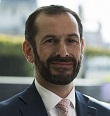
Matthew Davies is head of Global Transaction Services (GTS) for Europe, the Middle East and Africa (EMEA) at Bank of America Merrill Lynch. He is responsible for developing and executing the integrated strategy for the full end-to-end transaction services business in the region, including cash management, trade finance and commercial cards. Davies joined Bank of America Merrill Lynch in August 2010 and most recently was co-Head of Product Management for GTS EMEA where he was responsible for the product management of payments, receivables, virtual accounts, transactional FX, commercial cards, channels and information services. Other roles held within GTS EMEA include head of Corporate Sales and head of Strategic Solution Delivery.
Edwin Veenman
Head of Treasury, Yanfeng Global Interior Systems, Germany

Mr. Veenman is Head of Treasury for Yanfeng Global Automotive Interior Systems headquartered in Shanghai, China holding office in Neuss, Germany. Mr. Veenman has responsibility for Treasury in EMEA and the N.A. markets. Prior to joining Yanfeng Mr. Veenman held sr. Treasury positions at Huawei, Office Depot Inc., Dover Inc., Getronics N.V. and Equant N.V.
Saumya Mohan
Americas Region Treasurer, Tesla, US

Saumya began her career running corporate finance optimization models at Credit Suisse on Wall Street in lieu of joining academia after her Ph.D. She advised corporate clients via consulting engagements with tech companies and financial institutions at Cornerstone Research before joining the corporate world herself. Her experience includes forecasting capital and liquidity ratios in stress scenarios at a large US bank, as well as running global Treasury Operations at Symantec and it's spinoff, Veritas. She is currently the Americas Region Treasurer at Tesla where she manages working capital and investment needs at a company known for being on the cutting-edge intersection of technology and transportation.
Andy Nash
former SVP Finance Transformation, Royal Ahold Delhaize, Switzerland

After a financial grounding with Price Waterhouse and JP Morgan, Andy gained Treasury, M&A and Strategy experience with Finance leadership positions at IKEA, The Mulliez family and Ahold Delhaize. He is an Advisor to C2FO and provides consultancy services to other companies. A Chartered Account and MBA, he also has (recently) the FT Non- Executive Directors diploma.
Sebastian Rojas
Global Senior Market Manager - gpi, SWIFT, Belgium

Sebastian Rojas is Global Corporate Engagement Manager at SWIFT. He is responsible of business development and commercialisation of the SWIFT global payments innovation (gpi) initiative for corporates. Sebastian has been at SWIFT since 2008 in various roles, including product management of the SWIFT cloud connectivity offering Alliance Lite2, L2BA and Lifeline. Sebastian’s experience also includes the market management of the SWIFT for Corporates portfolio for multinational companies. He was also responsible for the business development of SWIFT’s digital identity solution 3SKey.
Christof Hofmann
Global Head of Payments & Collection Products, Deutsche Bank, Germany

Christof Hofmann is the Global Head of Payments and Collection Products for Deutsche Bank's Global Transaction Banking (GTB) business. Based in Frankfurt, Christof is responsible for managing the global payments offering for corporates and defining the product strategy and investment priorities. He is engaged in key initiatives like PSD2, Instant Payments and Swift gpi. Previously, Christof held various positions in Deutsche Bank’s GTB business and in Group Strategy. Prior to joining Deutsche Bank in 2011, Christof was a member of the Financial Institutions practice of The Boston Consulting Group (BCG).
Preeti Chaturvedi
Global Receivables and Payments Product Manager, Citi, US

Gurjit Pannu
Treasury Manager EMEA, Uber, The Netherlands

Gurjit is a member of the Uber treasury team that has played an integral part of growing the banking and payments infrastructure responsible for executing over 2.5MM payments a week. Over the last four years, he and the team have built the foundation that supports the dynamic business needs of today, expectations for the future, while maintaining the flexibility to seamlessly integrate new markets and products. Gurjit started at the San Francisco HQ office, but relocated to manage the EMEA region in 2015. He led the selection and implementation of Uber’s current TMS and also oversees the intercompany lending programme.
Alfonso Velasco
Research Analyst - Europe, The Economist Intelligence Unit, UK

Alfonso is an analyst in the Europe team carrying out economic and political analysis of regions in the south and south-east of Europe. He has a background in applied macroeconomics and financial economics. He previously worked in the economics division at the European Central Bank. Prior to that, he co-founded a macroeconomic research company specializing in EU and US economic analysis. Alfonso holds a bachelor's degree in Economics from Emory University with a specialization in macroeconomics and financial economics.
Martin Schlageter
Head of treasury operations, Roche, Switzerland

Martin joined the German entity of the Roche Group as Head of Treasury in 1993. In 1998 he became European Head of Cash & Credit Management in Switzerland for the Vitamins Division where he built up a Shared Service Center in this area. After the divestment of the Vitamins Division in 2004 he joined Roche’s Group Treasury as Head of Treasury Operations where he implemented the InHouse bank. Before joining Roche he worked several years in foreign exchange trading in Frankfurt, Singapore and Paris. M. Schlageter holds a degree of the University of Applied Sciences, Rendsburg (Germany).
Petri Syvänne
Head of Sales & Business Development, Payment & Cash Management, Tieto, Finland

Petri works as Head of Global Sales and Business Development, Payments and Cash Management at Tieto. His focus is to provide the best solutions in areas of payment systems, instant payments and Virtual Account Management globally. Prior to Tieto Petri worked as Head of Accenture Payment Services. Before that he had a 12-year corporate banking career in various positions in Nordea and Stora Enso Treasury. Petri holds M.Sc.(Econ) and he lives in Espoo, Finland.
Sven Goeggel
Senior Manager, Treasury Advisory, E&Y, Switzerland

Sven Goeggel is Senior Manager at Ernst & Young Zurich and part of the Treasury Competence Group and looks after EY’s Treasury consulting services for Insurance and Corporates in Switzerland. The past 10 years Sven has gained in-depth experience along the entire Treasury value chain with a strong focus on transaction lead transformations. Prior to EY Sven worked for the in-house bank of Wurth Group and managed global treasury operations within front, middle and back office. He also built up a Treasury function in the Netherlands.
Magnus Attoff
Head of Financial Risk Management and Internal Bank, Ericsson, Sweden

Magnus has been the Head of Financial Risk Management & Internal Bank at Ericsson since January, 2017, where he is responsible for risk policies and directives, subsidiary funding, compliance and treasury related SOX activities, and treasury systems and IT. He has also previously held the title of Head of Treasury Controlling and Financial Reporting at Ericsson, having started with the company in 2005. Prior to Ericsson, Magnus was a Financial Risk Management Consultant with PricewaterhouseCoopers.
Vincent Jansen
Partner, Innopay, The Netherlands

Vincent is a partner at INNOPAY’s Dutch office. He is a passionate collaborative innovator and a thought leader on digital identity and e-payments. He has 15 years of hands-on experience in innovating networked products in complex multi-stakeholder environments. Currently he is supporting several international clients with their PSD2/Open Banking strategy.
Annemarie Decking
Former Head of Group Treasury, Kuoni Group, Switzerland
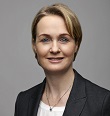
Annemarie Decking is a Switzerland based self-employed Treasury Interim & Project Manager. Prior to that she was from 2016 until 2018 Head of Group Treasury at Kuoni Group in Zurich, a private equity owned service provider to the global travel industry with CHF 3.35 billion turnover. After the decision was taken to separate the Group into three standalone companies her main task in this function beside the responsibility for the group wide treasury operations, was the separation of the treasury function into three new stand-alone set ups. In her 23 years career Annemarie gained 16 years of experience as Head Corporate Treasury in industrial companies (Jungheinrich, Dräger, Kuoni) and 2 years as Senior Manager in Management Consulting (Accenture). Annemarie is a qualified banking professional and holds a master’s degree in business administration from the University of Applied Sciences, Cologne (Germany).
Wolfgang Ratheiser
VP Corporate Finance & Treasury, Porsche Group, Germany

Peter-John Theuninck
Head of Group Treasury, World First, UK

Peter-John is the Group Treasurer for WorldFirst and has 14 years of experience in the FinTech and international financial services industry. Specialising in foreign exchange and cross border transactions he has held commercial finance and treasury positions in the UK, Switzerland and South Africa, gaining experience in different payment methods, technologies, and trading markets around the world.
Joerg Wiemer
CEO & Co-Founder, TIS, Germany

Joerg Wiemer, MBA, is co-founder and CEO of TIS. Joerg draws on more than 20 years of experience in the treasury and corporate finance area, with his most recent previous appointment being Senior Vice President and Head of Global Treasury at SAP SE, where he and his team were responsible for international treasury management.
Aniket Kulkarni
Director Treasury & Trading, PwC, Switzerland

Aniket Kulkarni leads PwC's Treasury and trading technology practice in Switzerland. Prior to joining PwC, he worked as a global product manager for treasury and commodity risk management in SAP. Aniket has a team of experts, helping corporates and trading companies in implementing treasury, FinTech and commodity trading systems and processes. He holds an engineering degree and a post graduate diploma in finance, and is certified treasury manager CTM.
Anna Eklund
Head of Cash Management, Nordea, Finland

M. Sc. (Econ) Anna Eklund is the Head of Cash Management in Finland at Nordea. Her responsibilities cover all corporate customer segments from small entrepreneurs to multinationals. Anna has a strong background in corporate banking and especially in liquidity and cash management management area with almost two decades of work experience in various managerial positions.
Stefan Windisch
Sr. Cash Manager - Treasury Operations, F. Hoffmann-La Roche, Switzerland

Stefan Windisch has been working at F. Hoffmann-La Roche Ltd. in Switzerland since 2009 in several Finance roles. Since 2012 he is working in Treasury Operations as Senior Cash Manager, overseeing the European region, its bank relationships and is responsible for the Groups short term liquidity planning. Prior to Roche he worked as Controller for a FMCG company and a leasing company in UK and Germany.
Hirotoshi Yoshida
Director Business Finance & Treasury, NTT DATA Corporation, UK

Hugh Davies
Director, Zanders, UK

Hugh joined Zanders in the UK in 2012. He is focusing on supporting corporates and banks in the field of treasury strategy and organization. Hugh has more than 30 years of experience in Cash and Treasury Management, principally on the banking side, where he worked with Citigroup to support many global and regional clients on transformational projects to increase cash visibility, centralize liquidity and improve payments automation and efficiency through the establishment of an In-House Bank and/or Payment Factory.
Imane Aztout
Group Treasurer, Deliveroo, UK

Imane Aztout is Group Treasurer at global online food delivery company, Deliveroo. Imane joined the company to build its first treasury function to support the rapidly growing organisation. This included putting in place treasury policies, developing banking relationships and building a payment process matching Deliveroo's high-volume, low-value business model. Imane is a qualified accountant.
Michael Vrontamitis
Head of Trade, Europe & Americas, Standard Chartered, UK
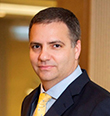
Michael is responsible for Standard Chartered’s trade finance business with European and American headquartered companies as well as the business across sales, product, service and implementation in Europe and the Americas.
Michael is a member of the BAFT Global Trade Industry Council, a member the ICC Banking Commission Advisory Board and World Trade Board. Michael co-chairs the ICC working group on the digitisation of trade finance. He previously chaired the SWIFT Offshore CNY Best Practice Working Group – Cash & Trade Group and in 2014 he was recognised by The Asset as The Renminbi Banker of the Year in the Industry Achievement Awards of the Triple A Treasury, Trade and Risk Management Awards.
Most recently Michael was the Head of Trade, Product Management, Transaction Banking Michael responsible for the P&L and delivery of the Bank's Trade Finance capabilities globally in documentary trade, receivables finance, supply chain finance, and distribution to all of the Bank’s clients across Corporate & Institutional, Commercial and Business clients.
Aarti Rao
Managing Director, LiquidX, UK

Aarti Rao joined LiquidX in January 2016 and is responsible for on-boarding and managing the relationship of Corporate clients on the platform. Prior to LiquidX, Aarti worked at Barclays Bank for 11 years where she held a number of senior client coverage roles in the US, UK and India. During her time at Barclays, Aarti primarily focused on the Healthcare and Industrial sectors working with Investment Grade and High Yield Multinational Corporate clients. She specialized in cross border banking related to debt finance, trade finance, risk management, cash management and card services. Aarti holds a Bachelors of Commerce from the University of Pune, India, and a Masters in Finance and Management from the University of Essex, UK.
Richard Tynan
Managing Director, TradeIX, UK

Mandana Sadigh
SVP & Treasurer, Mattel Inc., US

Ms. Mandana Sadigh has been Senior Vice President and Treasurer of Mattel, Inc. since 2010. She is currently responsible for all aspects of global treasury operations, capital and investment policy, global insurance and risk management, and global real estate. Mandana has over 25 years of experience at Mattel in a variety of senior leadership roles, including VP/Assistant Controller (1999-2000), SVP of Corporate Strategy and M&A (2000-2003), SVP of International Finance and Strategy (2003-2005), and SVP of US Finance and Strategy (2005-2010). Prior to joining Mattel, Ms. Sadigh spent 8 years in the banking industry in Los Angeles. Ms. Sadigh serves as the chair of Mattel’s Administrative Committee, responsible for overseeing the company’s various retirement plans, health and welfare plans, as well as deferred compensation plan. She also serves as the chair of Mattel’s Political Action Committee (PAC) Advisory Board, and holds the position of the Treasurer of PAC. She is the President and Member of the Board of Directors of Far West Insurance Company, a subsidiary of Mattel, Inc. Mandana serves on the board of directors of Los Angeles Chamber of Commerce and is an active member of the Toy Association Investment Committee. Ms. Sadigh holds a bachelor’s degree in economics and a master’s degree in business economics from the University of California in Santa Barbara.
Roger Vincent
Chief Innovation Officer and GM (UK&I), Trade Ledger, UK

Roger is a specialist innovator with experience in driving open banking strategy and commercialisation programmes across both global corporates & FinTech start-ups. He has built extensive knowledge in the use of traditional & alternative data for risk management in a career including roles at Lloyds, Barclays, Equifax and most recently with technology start-up Trade Ledger where he is now running the UK & Ireland operations.
Roger has experience in driving UK & International open data strategy, policy & standards at a corporate and industry level with his white papers & thought leadership featuring in a number of influential publications. Featured in 2018 by KPMG as one of their “Voices of 2030” in financial services, Roger is an experienced speaker and panellist with strong views on how open banking is simply the beginning of a much wider global trend towards consumer empowerment and the proliferation of open data.
Roger’s aspiration with Trade Ledger is to completely revolutionise the way small, medium & large enterprises access appropriate & affordable finance through the use of open data, artificial intelligence and robotic automation.
Mark Buitenhek
Global Head of Transaction Services, ING, The Netherlands

Mark Buitenhek (1966, Dutch nationality) is a seasoned banker. He is Head ING Transaction Services. His knowledge of banking combined with his endless energy and swift 'out of the box' thinking, makes him a reliable partner for traditional way of banking and a sparring partner for innovative accelerator projects and start-ups.
Jonathan Williams
Principal Consultant, MK2 Consulting, UK

Jonathan’s career has encompassed product roles in financial technology, telecoms and cybersecurity. Most recently leading payments products at Experian, he is now an independent advisor at Mk2 Consulting. He helped three start-ups (Virata, Content Technologies and Eiger Systems) to IPO/acquisition. He studied physics and computing at Cambridge University.
Brice Muller
Treasury Operations Manager, Metalor Technologies, Switzerland

Brice joined Metalor Technologies SA four years ago. He is now in charge of the Treasury Operations department where he deals with several topics like cash pooling implementation, payment efficiency, daily treasury tasks automation… He has a 9 years' experience in Treasury and Product Control within large companies.
Chris Stibbs
CEO, The Economist Group, UK
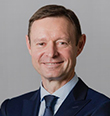
Chris became the Chief Executive of The Economist Group in July 2013, he has been with the Group for ten years. Prior to becoming CEO, he ran the Economist Intelligence Unit (EIU) for three years, overseeing its growth in customised bespoke solutions, Asia and healthcare markets. He had previously been the Chief Financial Officer for the Group. Before joining the Group, Chris had various roles in finance, business development and general management in varied organisations such as Pearson, ICI and Incisive Media. He graduated as a Chartered Accountant with Ernst & Young in 1989 and is also a Fellow of the Association of Corporate Treasurers.
Sebastian di Paola
Partner, PwC, Switzerland
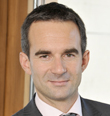
Sebastian leads PricewaterhouseCoopers Global Treasury Consulting practice. He is based in Geneva where he is responsible for a multi-disciplinary team of consultants, advising corporates on all aspects of their treasury activities, including risk management, treasury policies, processes, system selection and implementation, controls and accounting. Sebastian is a UK Chartered Accountant, a member of the ACT and has an MA in Law from Emmanuel College, Cambridge.
Dan Greiller
Sales Director, Feedzai, UK

Daniel Greiller has worked in Payments and Banking for 15 years across companies such as HSBC, American Express, and more. Dan moved to Feedzai in 2015, believing that AI was the future of making the banking and commerce ecosystem both secure and frictionless and has since worked to help companies worldwide discover the power of using machine learning to improve the accuracy of data-driven processes throughout their customer lifecycle.
Ad van der Poel
Co-head Product Management, Global Transaction Services EMEA, Bank of America Merrill Lynch, UK
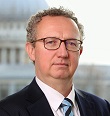
Ad van der Poel is the co-head of Product Management for GTS EMEA. He is responsible for the development and deployment of payments, receivables, FX, liquidity, channels and information services for both corporate and FI clients across the region. Ad has over 20 years’ experience in the payments industry.
Christel Sahyoun
Head of Corporate Finance and Cash Management, Constellium, Switzerland

Bernhard Groetsch
Head of Group Treasury, Rohde & Schwarz GmbH & Co. KG, Germany

Bernhard Groetsch is heading Rohde & Schwarz ‘s Group Treasury. Also, he is Managing Director of Rohde & Schwarz Corporate Finance GmbH, the Group’s entity taking care of financial investments. Before joining Rohde & Schwarz in 2000, he worked for Allianz and IBM Germany. He studied Business IT in Stuttgart and Economics in Konstanz and Lund. He is a CFA charterholder.
Mathieu Primot
Digital Officer - Finance, TOTAL SA, France
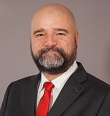
Mathieu Primot joined the Group Finance Division of Total as Digital Officer in August 2018, after 4 years as Total head of Treasury Management Systems. He is in charge of defining, promoting and deploying digital solutions for finance. Mathieu holds a Masters’ degree in Management from Paris Dauphine University and a degree in IT management from Institut Mines-Télécom Business School.
Gerald Taylor
Sr. Manager Treasury, Delivery Hero, Germany

American background and decided to move to France and further my studies where I hold degree in Finance & Accounting. Held several positions within the Finance Division for a Luxury company with it HQ based out of U.S. Prior joining my current role as Senior Manager Treasury, I also worked for another Tech company within the Treasury Department supporting the EMEA and APAC operations.
Christian Schmahl
Director of Treasury, Delivery Hero, Germany

Studies of Business Administration in Berlin and Winterthur-Zurich/Switzerland
Studies of ‘Swiss Certified Treasurer’ in Zug/Switzerland
Treasury Manager at Groupon building up a global Treasury Department fitting the transmission from a Tech Startup to a NASDAQ listed global corporate.
Treasury Director at Delivery Hero building up a global Treasury Department fitting the transmission from a Tech Startup to a DAX listed global corporate.
Ambareen Morshed
Senior Treasury Product Manager, Global Transaction Services EMEA, Bank of America Merrill Lynch, UK

Pedro Batista
Director of Banking, Optal, UK

Pedro Batista is Optal’s Director of Banking, a key role focused on building and managing a global banking network to support new payment products. He draws on 10+ years’ experience working for Fortune 500 banking firms including Bank of America Merrill Lynch. Despite a busy schedule, he’s managed to find the time to train as a private pilot, complete the gruelling Ironman triathlon twice and become a certified PADI diver.
Vincent Beerman
Director of Product, AI & UX, Taulia

Andrew Goldie
Managing Director and Owner, Coprocess

With Masters Degree in IT from the University of Glasgow, Andrew started work for a UK software company and then moved to Dupont in Switzerland. In 1988 he pioneered and launched the world's first PC based multilateral netting system. After successfully licensing the solution to two Scandinavian Banks he founded Coprocess SA in Geneva in 1991 as a specialist netting provider. Today with over 25 years' experience at the helm of Coprocess, Andrew has unrivalled experience in intercompany netting. His knowledge covers all areas of the business from development through deployment to sales and support. Andrew is the Founder and Managing Director of Coprocess.
Brendan Duhamel
Blockchain Lead, TradeIX

Giuseppe Massimiliano Di Fazio
Area Sales Executive, Board

Giuseppe Massimiliano Di Fazio is Area Sales Executive at BOARD International. In this role he set up the business in Switzerland and he’s responsible for the Business Development for BOARD Financial solutions within the Swiss Market including BOARD Financial Consolidation Application, BOARD FP&A and BOARD Lease Accounting. Prior to his role at BOARD International he was supporting several Swiss companies to expand their activities abroad. Thanks to his multilingual skills he owns international experience of business development, implementing and driving BI, Finance and Corporate Performance Management focused solutions. Giuseppe Massimiliano joined BOARD in 2013. He holds a Master’s degree in Economics and Statistical Sciences from Bocconi University.
Bruce Parker
Founder & CEO, Modo, US

Bruce Parker is a self-declared #paymentsgeek and has been a visionary and strategist for some of the largest and most innovative payments technology companies in the world. Bruce has created new products, built partnerships and shared strategy that has moved the payments industry, in some cases, to tears. Bruce founded Modo, in part because he had no idea what he was doing, but he remains the CEO until someone figures this out. Modo creates interoperability and manages connections between payment systems. Bruce has the uncanny ability to connect the most diverse payments industry participants, and now has a company to help others do the same. Oh, and Bruce is also an accomplished diner and can recommend the best restaurant in any city in the world, and the best valued (red) wine on their wine list.
Vikram Gollakota
Client Solutions Director, HighRadius

Vikram Gollakota has more than fourteen years of experience in consulting and implementation of AR solutions globally. In his career, he has worked for corporations in various industry verticals including; Consumer Goods, Pharmaceutical, Banking, Agriculture, Retail, Oil and Gas, Manufacturing and Food Processing. He has deep knowledge in the credit-to-cash space and is currently responsible for the banking and payments channel at HighRadius.
Gwyn Roberts
VP EMEA, HighRadius

Tim Martin
Product Manager, Cashfac

Tim Martin has worked in the banking and financial services sector for over 27 years. Currently he is a Product Manager at Cashfac Technologies responsible for defining the product strategy and ensuring the roadmap aligns with the company’s customers and bank partners. Prior to Cashfac Tim was at SmartStream Technologies for 12 years, as a product manager, alliances manager and pre and post-sales consultant. Prior to this Tim was at Broadridge for 12 years, covering product management, project management and development roles.
Panida Ahlin
Product Sales Lead, Adjoint, UK

Panida is an experienced product manager specialising in providing global liquidity solutions to corporate and institutional clients. She is the Product Sales Lead for Treasury Solutions at Adjoint. Prior to joining Adjoint, she worked at J.P. Morgan Chase managing Cash Concentration products. Her background also includes structuring and executing securitised and structured transactions.
Yankit Gupta
Team Leader Banking - Treasury, Booking.com, The Netherlands
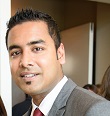
Yankit Gupta joined Booking.com in 2013 and is currently Team Leader for Global Banking in the Treasury Team based in The Netherlands. He has been involved in various Treasury roles including Cash Management, Banking Specialist for EMEA and APAC. He has been instrumental in developing banking relationships and in providing solutions in wide areas of Treasury such as collection and payment solutions in different geographies, cash management, swift and fileact connectivity. His team was also recognized as a highly commended winner for best cash management solution in Adam Smith Awards Asia – 2017.
Milena Torciano
CEO, Mitigram

Milena Torciano was appointed CEO of Mitigram in May 2017, leading the build-out of the fastest growing global trade finance platform - over USD14bn facilitated transactions, risk priced in 100+ countries and on over 500 issuing banks.
Prior to her current role, Milena was a senior Director with AnaCap Financial Partners (c. €3.3bn AUM, London), an active owner of and majority investor in fast-growing, technology driven financial service companies, controlling 6 banking platforms across Europe.
As a Director of the AnaCap Credit Fund, Milena led the sourcing, acquisition and management of credit assets across Europe, including taking responsibility for building the Fund portfolio management operations.
Milena was also a Senior Engagement Manger with Oliver Wyman Financial Services advising banks on Corporate Finance and Risk Management strategy (London, Paris, New York, Amsterdam, Istanbul).
Milena is an LSE graduate (First Class Honours), and fluent in Italian, English, French, Spanish.
Angel Bustos
Global Head of SCF, Santander, Spain

Jorge Schafraad
CEO, Cobase

Desiree Pires
Co-Head, UK Corporate Sales, Standard Chartered

Desiree is Co-Head of the UK Corporate Sales desk at Standard Chartered and has over 15 years of experience in advising multi-national Corporate clients on all aspects of financial market risk management - from interest rate and currency derivative solutions linked to financing & M&A activity, transactional & translation risk management to investment solutions for the asset side of the balance sheet. Desiree holds a Masters in Economics from the University of Edinburgh and a Masters in Finance from the London Business School.
Ilkka Korkiakoski
VP Head of Transaction Banking, Tieto, Finland

Ilkka has a broad international experience in banking, corporate finance, consulting and IT. As a Head of Transaction Banking in Tieto he is responsible for Payment Solutions and Services business globally. Prio to the current role Ilkka has held many senior management roles in Tieto and worked in OP Banking Group as a Head of Digital Banking.
Albert Hollema
Group Treasurer, Endemol Shine Group, The Netherlands

Albert joined Endemol Shine Group as Head of Treasury & IR at the end of 2016 and is responsible for treasury, corporate finance, investor relations and insurance. Albert is a seasoned finance executive with extensive experience in treasury, corporate finance, investor relations and related areas. Prior to joining Endemol Shine, he held several senior roles across different sectors at Veon, NXP, AkzoNobel, Danone, Numico, GUS and Robeco. Albert was the chairman of the Dutch Association of Corporate Treasurers (DACT) until 2009.
Fernando Cebada
Corporate Treasury Director, NH Hotel Group, Spain
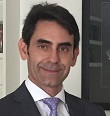
Fernando Cebada is a seasoned financial professional with more than 20 years of experience, developed in various sectors and companies. Currently Corporate Treasury Director at NH Hotels Group. I initiated my career in the financial consultancy sector working for two of the Big Five firms (Arthur Andersen and PWC). I have developed leading Treasury roles in multinational companies such as British Telecom, Vestas Wind Systems, or Laureate International Universities. Also developed other relevant financial roles, such as Financial Risk Director at Grupo Ferrovial, Funding and Operations Manager at Econocom, or CFO at SegurControl.
Tino Kam
Head of Payments, Liquidity Management & Corporate Channels - Transaction Banking, Nordea, Denmark

Tino works as Head of Payments & Liquidity Management Solutions, Transaction Banking at Nordea. His focus is delivering sustainable and effective cash management, treasury, liquidity and payment solutions for Corporates. Tino has 20+ experience in global transaction banking in leading roles for ABN AMRO and RBS and worked as consultant for Capco.
Alankar Karol
Managing Director, GTreasury, UK

Dr Alankar Karol is Managing Director, EMEA at GTreasury, where he consults widely with leading global companies and financial institutions on Treasury, Complex Risk and Analytics, Asset and Liability Management, Valuation, Hedge Accounting and Compliance. He has over 15 years of treasury experience, including his most recent post as head of the Quantitative Services desk at Visual Risk. He holds a PhD in Applied Mathematics and a Masters of Finance, and works extensively in Artificial Intelligence and Robotics.
Kati Vellinki
Group Cash Manager, Group Treasury, SSAB AB, Finland

Executive MBA, BBA, Kati Vellinki is Group Cash Manager at SSAB AB, global steel company based in Sweden. She has comprehensive working experience in managerial positions on banking, treasury and corporate finance. Her work has focused on cash management operations and strategic development in global level.
Stefan Feller
Director Capital Markets, Loanboox
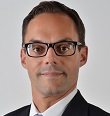
Stefan Feller has nearly 20 years of experience in finance and most recently he has been responsible for financing and cash management for the Axpo Group. Prior to that, he worked for F. Hoffmann-La Roche and UBS, gaining experience in treasury, corporate finance and asset management. Stefan graduated in business economics at HWV and is a CFA Charterholder.
Christian Klumpe
Head International Roll-out, Loanboox

After completing his apprenticeship in a municipal administration, Christian collected some years of experience in a state administration before he graduated in business management from the University of Osnabrück with the specialization of finance and international management. He has more than 10 years of experience in financial analysis, turnaround and change management. Christian established international treasury centers for several companies and was able to manage several key projects throughout the EMEA region.
Alain Falys
Co-founder & Chairman, Yoyo Wallet, UK

Alain is a serial technology entrepreneur and investor. Perviously CEO, he now serves as Chairman of London-based Yoyo Wallet, Europe's fastest growing mobile payment and loyalty marketing platform, which he co-founded with Michael Rolph and David Nicholson in 2013.
Alain is also a Partner at Firestartr.co and a founding LP at blockchain fund Fabric.vc. He is a member of RBS’ Technology Advisory Board and a Director at FinTech companies Pelican.ai and OneLinq.nl.
Previously, he co-founded the OB10 global e-invoicing network, which floated in London as Tungsten Corporation Plc. He was Senior Vice President at Visa International and co-founded Omnis Mundi, an e-commerce incubator with operations in Frankfurt, Berlin and Zurich, with successful startups such as BuyVip sold to Amazon in 2010.
Alain holds the Diplôme d’Etudes Supérieures Européennes de Management from the NEOMA Business School and a BA Honours degree in European Business Administration from the Middlesex University, London. He has lived and worked in multiple cities including Milan, Paris, Berlin, Kuala Lumpur, London and now lives in Zurich with his family. Alain is fluent in English, French, Spanish, Italian and has basic knowledge of German.
Alexei Zabudkin
CFO, CRX Markets, Germany

In April 2017, Alexei has joined the board of directors and is responsible for Capital Markets, Operations and Regulatory Affairs. Before he joined CRX in February 2015, Alexei has worked at Goldman Sachs for almost fifteen years in various roles ranging from Debt Capital Markets, Distressed Debt Origination & Structuring and Structured Sales & Solutions. As a Managing Director, he was responsible for the Credit Sales business of Goldman Sachs in Germany and Austria. Alexei is a real athlete fascinated about running and triathlon, finished a vast number of marathons, ultra-marathons and triathlons.
Lane Silverman
VP & Head of Group Treasury, JT International SA, Switzerland

Eric Pretelat
VP Treasury - Cash and Risk Management, Schneider Electric Group, France

Jane Strom-Pedersen
Senior Customer Manager

Lu Zurawski
Practice Lead - Consumer Payments, ACI Worldwide

After a background in consulting, systems integration and service management at consultants Logica, Lu joined ACI in late 2014 to develop strategic payments business propositions, particularly in the emerging fields of Open API, new access models and real time alternative payment methods. Lu now has over 20 years’ experience across a variety of payments markets. With a strong innovation record - including working on one of the world's first mobile payment schemes and in the first Open Banking initiative - Lu's activities cover the latest trends in consumer payments, and their impact on the practical operations of modern payments businesses.
John Ferguson
Director of Global Forecasting & Country Analysis, The Economist Intelligence Unit, UK

As the Director of Global Forecasting at The Economist Intelligence Unit, John is responsible for providing leadership and oversight for the EIU's global economic analysis and forecasting. He is a leading voice on the global economy, geopolitics and the future of globalisation.
Sara Andersson
Treasury Operations Analyst, Spotify, Sweden

Marc Delbaere
Head of Corporates and Trade, SWIFT

Marc Delbaere is Head of Corporates and Supply Chain markets at SWIFT. Previously, Marc was Head of MyStandards at SWIFT, a role in which he imagined, initiated, launched and grew MyStandards into the central financial services industry platform for standards management and customer onboarding. Marc joined SWIFT in 2008 as Head of Standards Strategy and Architecture from IBM where he worked for 13 years. While at IBM, he was in charge of the IBM Industry Models portfolio, an intellectual property offering at the crossroads of business and IT. Marc studied Business Engineering at Solvay Business School and received a post graduate degree in Actuarial Sciences – stochastic finance from the Université Libre de Bruxelles (ULB).
Julie Sis
Supply Chain Funding Manager, Airbus, France

Mirco Roeben
Sales Director DACH, Taulia, Germany

As Account Executive, Mirco drives worldwide growth, increasing market penetration and identifying new business opportunities. Since joining Taulia in 2015, Mirco, who previously served as Business Consultant at Taulia, has helped grow and mature Taulia´s largest Programmes and knows what it takes to successfully implement and manage Dynamic Discounting and Supply Chain Finance Initiatives. Before Taulia, Mirco served as Head of Controlling, Business Development and Business Consulting Manager at Ingenico and PWC. Mirco has over 10 years of experience in FinTech and financial services industries and holds an MBA from Mannheim Business School.
Jacques Molgo
VP Corporate Finance & Treasury, Air Liquide, France
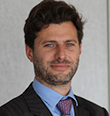
Jacques Molgo is Group Financing and Treasury Director of Air Liquide. He has joined the Group in 2011, after having held several positions in the Treasury and Financing area within the Alcatel-Alsthom Group, and then as International Treasurer of Publicis Group. More recently, he was in charge of structuring and executing risk hedging solutions at Société Générale. Jacques has a Masters’ degree of Financial Engineering from University Paris I Panthéon- Sorbonne. He is also graduated of the French Society of Financial Analysts (SFAF), and is a Board member of the French Association of Corporate Treasurers (AFTE).
Raul Unanue Torres
Group Treasurer, Adveo Group, Spain
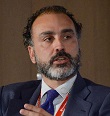
Raul has worked half of his professional career in the banking sector. Initially, as a Corporate and Investment banker at Santander Group and later at Forts Bank in charge of Large and Mid Caps Coverage - Lending, Transaction Business, Working Capital solutions. For the last 8 years, he has worked as Group Treasurer responsible for Financing, Treasury and Risk at Adveo Group International - European leading company at the Office Supplies Market. Bachelor in Economics at Carlos III University Madrid(Spain), with more than 20 years of experience in finance and Banking.
Daniel Cotti
CFO, TradeIX, UK

Dani has over 30 years of experience in Global Trade Finance, Transaction Services, Banking and Technology. Dani was the European Trade Finance Head at Citibank and Global Head of Trade Finance and Transaction Products at ABN AMRO/RBS. Subsequently, he managed and build out the Global Trade Finance and Loans business at JP Morgan. In 2015, he founded Cotti Trade & Treasury, a consultancy firm for global trade finance. Dani is a Trade Finance industry expert and had industry wide, global engagements with SWIFT, BAFT, ICC and WTO organizations and is currently the non-Executive Chairman of the Board of Bolero Intl. Ltd.
Simon Taylor
Co-Founder, Director of Blockchain, 11:FS, UK

Simon is co-Founder and Blockchain Lead at 11:FS, he is one of the most recognised thought leaders on Blockchain and DLT. Previously at Barclays, he established the bank as one of the leaders in blockchain thought and action, Simon also serves as an advisor to central banks and governments, in addition to consulting the top 20 banks on blockchain. He's helped a variety of startups flourish through the Barclays Accelerator. He also co-hosts FinTech Insider, #1 business podcast on iTunes, listened to in over 152 countries and Blockchain Insider a brand new podcast launched in July.
Jacqui Drew
Sales and Account Management Solution Consulting, ION Treasury, UK

Jacqui manages the Reval business for the EMEA region of ION treasury. She has spent 7 years selling to and advising large multinational corporate companies on attaining efficient and effective Treasury and Risk Management solutions. Jacqui leads ION’s Global Hedge Accounting Technical Taskforce supporting the business and customers. Prior to ION Jacqui spent 10 years with Deloitte in the UK, USA and South Africa.
Christof Nelischer
Global Group Treasurer, Willis Towers Watson, UK

Christof Nelischer is Global Group Treasurer at Willis Towers Watson plc based in London, having been appointed following the merger of Towers Watson and Wills Group in early 2016. In his role, Christof leads treasury as well as the insurance function. He joined Willis Group in 2010. Earlier positions include Head of Treasury at Fiberweb plc, leading corporate treasury as well as risk management, Group Treasury Manager at Novar plc, where he re-engineered the treasury function, and European Treasurer at Kellogg’s, having set up the European Treasury Centre.
Christof holds a dual degree in European Finance and Accounting, and an MBA from Manchester Business School. He qualified with the Association of Corporate Treasurers. Willis Towers Watson plc was the joint winner of TMI’s 2017 Corporate Finance and Funding Award under Christof's leadership. He is currently transitioning out of his role.
Christina Easton
Principal & Founder, elemenTEL, UK
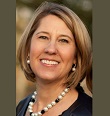
Christina Easton, Principal and Founder elemenTEL Mrs. Easton is an experienced global business consultant, project manager, and Certified Prosci® Change Management Practitioner to Fortune 500+ companies. Her specific expertise lies in leading business transformation projects in the areas of commercial cards, corporate payments, e-commerce and global treasury operations. Having worked and lived on three continents, Christina's consulting expertise is founded on understanding global differences, leveraging her banking and high tech corporate work experience and her passion for payments. Prior to elemenTEL, Christina was Senior Manager of Global Cash Operations at Microsoft Corporation based in Redmond, Washington. Christina spent the previous four years as Senior Manager, Global Payments at Microsoft assisting business groups with online monetization and advising on Payment Strategy. Before joining Microsoft, Christina held various Treasury positions at Cisco Systems Inc., as well as Treasury Sales positions at Bank of America in both the United States and United Kingdom. Christina holds a MBA in Finance and Information Systems Management from Seattle University, a BA in Business Administration from the University of Puget Sound, and has completed management programs at University of Michigan Business School and Berkley Center for Executive Development. Christina served as a member of AFP’s Payments Advisory Group, Vice Chair of the OAUG AP SIG; is member of PMI, CMI and is a Certified Prosci® Change Management Practitioner.
Rohit Goyal
Director, LiquidX

Rohit Goyal heads LiquidX business in Asia. LiquidX is New York-headquartered electronic marketplace for illiquid financial assets. LiquidX helps large corporates optimize their treasury to achieve tangible impacts on working capital through process and technology innovation. Rohit has over decades of experience in portfolio management roles in corporate private credit and private equity funds in Asia. In his last role – he was managing receivables and supply chain credit portfolio at Singapore based private credit asset manager - EFA Group in Singapore. Rohit holds CFA Charter together with Masters in Business Administration from Singapore Management University and Masters in Finance from IE Business School - Spain.
Louis de Bruin
Blockchain Leader Europe, IBM Global Business Services, The Netherlands

Louis de Bruin is Blockchain Leader for IBM Global Business Services in Europe. He has early on recognized Blockchain's potential to improve and simplify cumbersome processes in complex ecosystems. This is in particular the case in supply chains where large amounts of data are exchanged between many parties. Louis is closely involved in IBM's Trade Digitization programme where Blockchain is used to drastically reduce the flow of physical documentation accompanying goods and the time required to clear goods from source to destination. For this reason he works closely with banks, insurance companies and government institutions that all see drastic changes to their role in supply chain processes. He leads a number of Blockchain development project such as the formation of a Blockchain consortium that includes insurance companies and government institutions such as a Vehcile Licensing Agency, Police to provide the public a solution that reduces vehicle related crime, based on the award winning Bikeblockchain, that IBM co-developed. Louis is also closely working with the Linux Foundation's Hyperledger Fabric effort, an open source technology used by IBM to develop many enterprise grade Blockchains. He has been appointed to the Strategic Adivsory Board of the Centre for Resilience Engineering of the four collaborating Technical Universities in the Netherlands. In this capacity he advises companies on the use of Blockchain in the attainment of Sustainable Development Goals and the Critical Infrastucture Protection Forum. Louis is board member of the WSB foundation that drives the adoption of renewable energy and actively works with schools and universities to help young people to build a future with sustainable energy. Louis is co-author of the book "Working with Blockchain" with preface of Mr Dijsselbloem, former president of the Eurogroup. He frequently speaks at international Blockchain events and as guest lecturer he teaches at universities throughout Europe and acts as advisor to government officials and Members of (European) Parliament.
Cassie Craddock
European Lead, Ripple, UK

Cassie is the European Lead for Fintech and Marketplaces at Ripple, the world's only enterprise blockchain solution for global payments. She is a marketplace payment expert, with over five years of experience in financial services. She specializes in building relationships with key multinational payments companies, sharing economy platforms and marketplaces, regulation technology, and innovation. Prior to joining Ripple, Cassie worked for French startup Mangopay, where she successfully launched their UK operations.


